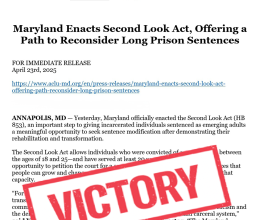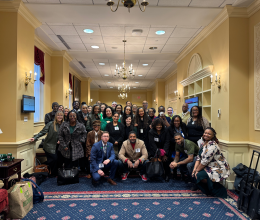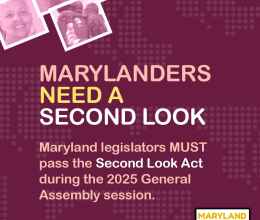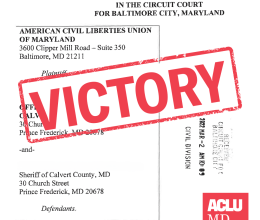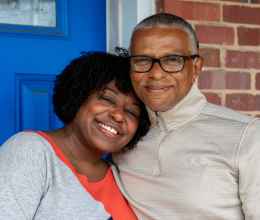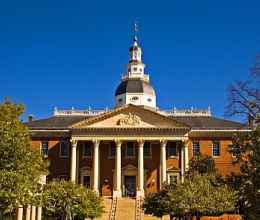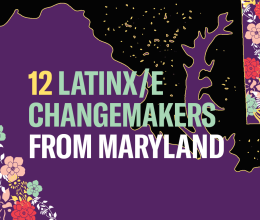
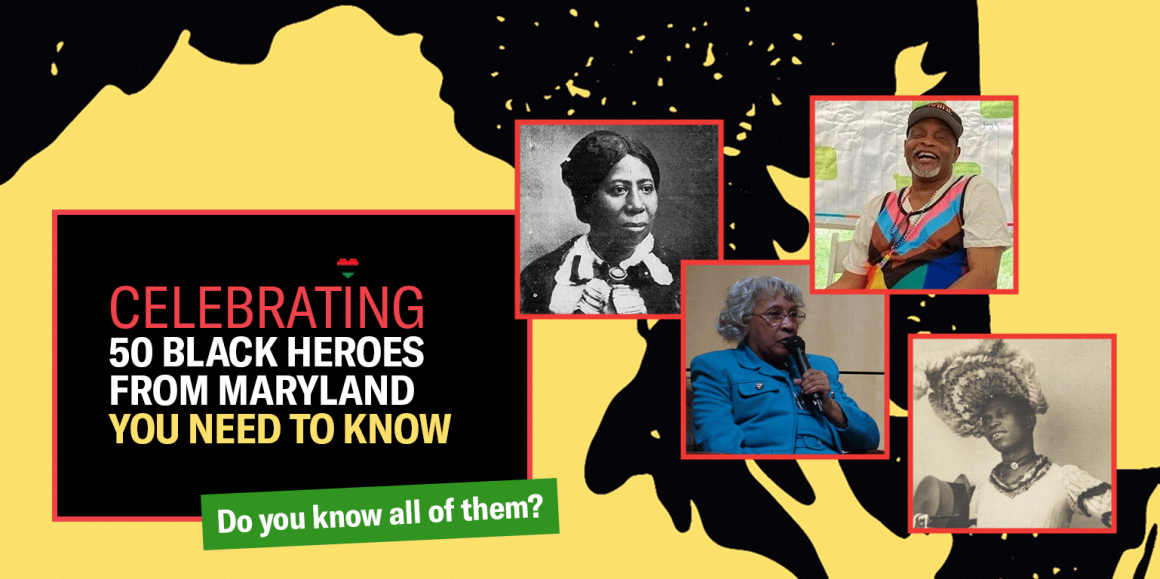
Black history is American history. Generations after generation of Black Americans have called on this country to live up to its promise of life, liberty, and democracy, as guaranteed by the Constitution. Since its inception, 2025 has presented new (and some familiar) challenges to not only democracy, but also to the dignity and humanity of Black people. In this year’s edition of “Black Heroes from Maryland,” we’ve lifted up even more scholars, disrupters, reformers, and protesters who exemplify the hope of a people, despite the nation’s unwillingness to extend to them Constitutional protections. At the ACLU of Maryland, we honor these heroes by living up to their fierce reputation of resistance, and by acknowledging the ambition their actions. The legacy they’ve left behind and their incredible stories inspire us to carry on and create more tales of bravery and perseverance for years to come.
We are creating an archive of Black heroes in Maryland history. Is there a historical Marylander who isn't already on the list below?
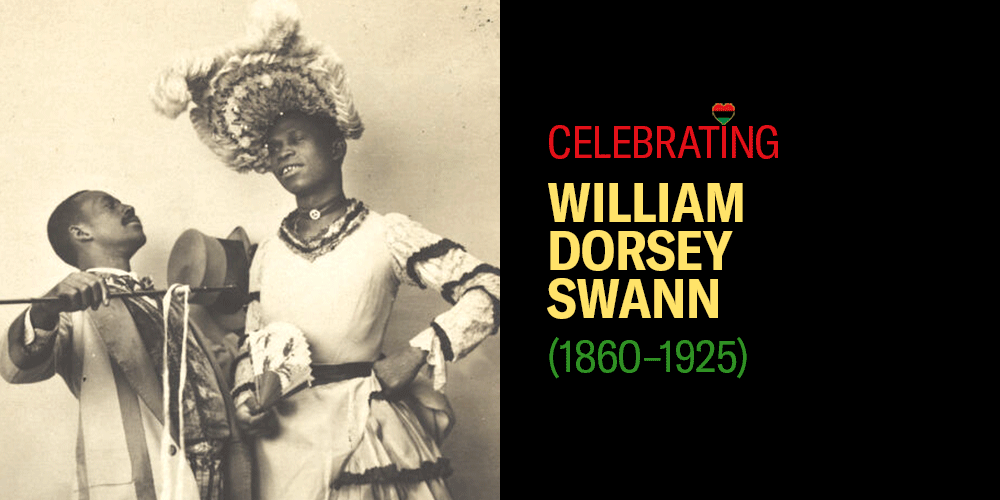
- William Dorsey Swann (1860–1925)
William Dorsey Swann is the first known individual in the United States to self-identify as a drag queen. Born in March 1860, Swann was enslaved in Hancock, Maryland. Following the Civil War, Swann’s parents purchased a farm, and he got his first job as a hotel waiter. In the 80s and 90s, he began hosting private events that that are commonly referred to as drag balls in Washington D.C. These balls became places of community, celebration, and unity for those in the queer community, where former enslaved people dressed in silks, dresses, and participated in a style of dance known as voguing. Due to the nature of his gender identity as well as his race, Swann was arrested several times by police in raids but continued to act as a leader within queer resistance groups, including his very own House of Swann. In 2022, the Dupont Circle Advisory Neighborhood Commission Northwest Washington, D.C., approved a resolution declaring Swann Street, to be named after the First Drag Queen, William Dorsey Swann.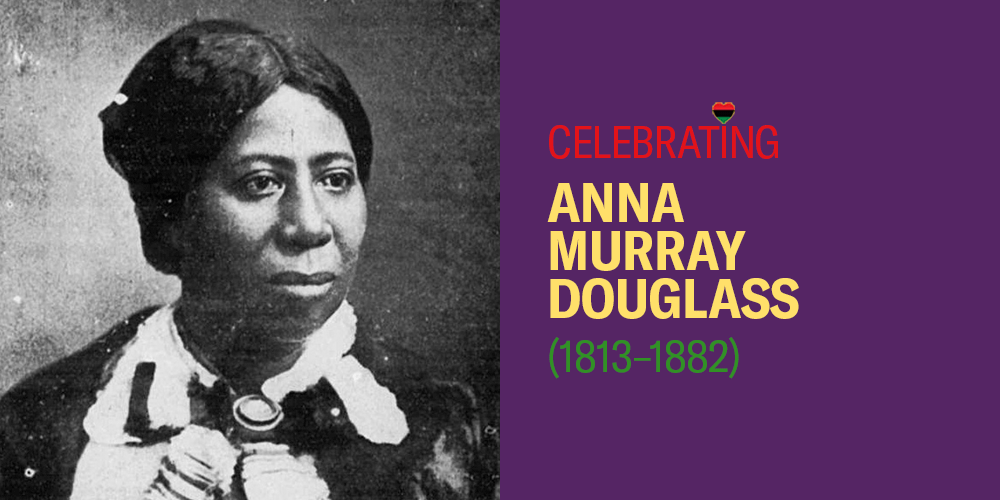
- Anna Murray Douglas (1813–1882)
Born on the Eastern Shore of Maryland, Anna Murray Douglass was abolitionist and member of the Underground Railroad. Unlike many enslaved men, women and children of the time, Anna was born free as her parents were released in Denton, Maryland just before she was born. Anna was incredibly resourceful and at the age of around 17 she left her family to find work where she eventually met Frederick Douglass around 1838, the same year he had escaped slavery. The support and encourage that Frederick received from Anna who was born free, played a pivotal role in his own possibilities and eventual success. The two married and had five children within their first ten years of marriage. When the family relocated to Rochester New York, Anna created a headquarters for the Underground Railroad, providing clothes, food, and shelter for enslaved people on their way to Canada. Anna’s daughter Rosetta often reminded people who looked up to her father that his “was a story made possible by the unswerving loyalty of Anna Murray.”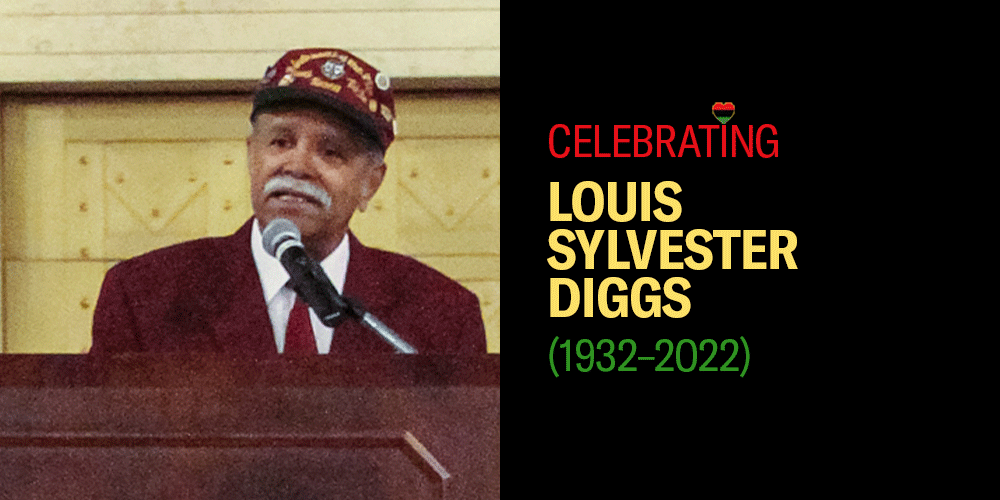
-
Louis Sylvester Diggs (1932–2022)
Writer and historian Louis Sylvester Diggs was born in Baltimore on April 13, 1932. Diggs was a student at Douglass High School before he left to join the all Black Maryland National Guard in 1950. He did tours in Korea, Germany and Japan before retiring from the military in 1970. Following his retirement, he began working in DC Public School as a military instructor. In 1975 he earned his high school diploma, an associate’s degree from Catonsville Community College in 1976, a cum laude graduate from the University of Baltimore in 1979, as well as his Master of Public Administration from the University of Baltimore. Diggs’ incredible academic mind served him well as he began chronicling the historical legacies of Black people in Baltimore County where he specialized. His work and research eventually led to his first book It All Started on Winter’s Lane, with nine more books to follow. Among his many honors, in 1997 Diggs was recognized by the State of Maryland for preserving the history of Black communities in Maryland.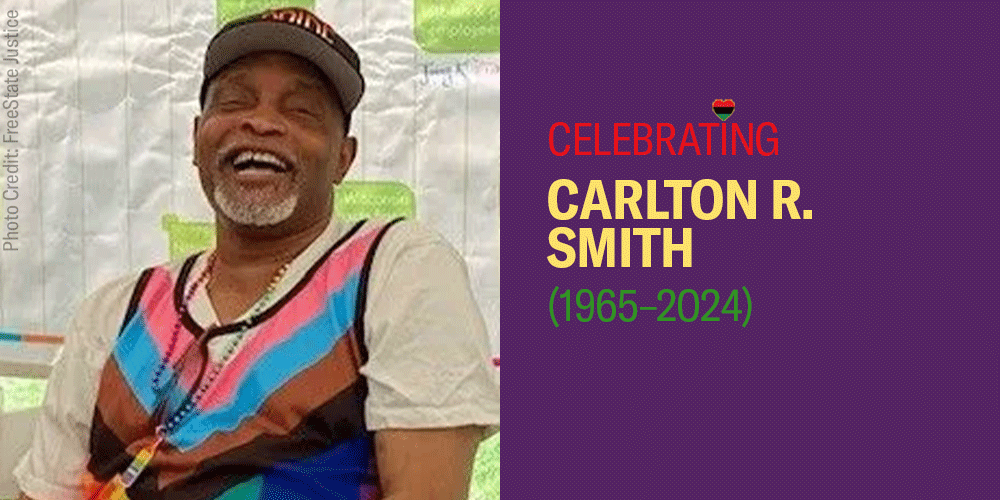
-
Carlton R. Smith (1965–2024)
Morgan State University alum Carlton R. Smith was an LGBTQ+ advocate most affectionally known as the “mayor” or “Duchess” of Mount Vernon. Born in 1965, Smith dedicated his life to the advancement of the queer community, particularity Black and other marginalized groups as well as those impacted by HIV, like himself. Through his efforts, Smith was able to advocate for medical improvements as well as help many of his comrades live a full life. For over 20 years he led numerous rallies, community events, and educational programs with the help of Blaq Equity Baltimore which he cofounded, as he celebrated and made positive impacts on the LGBTQ+ community in Baltimore. December 1st in Baltimore City is recognized as Carlton Smith Day.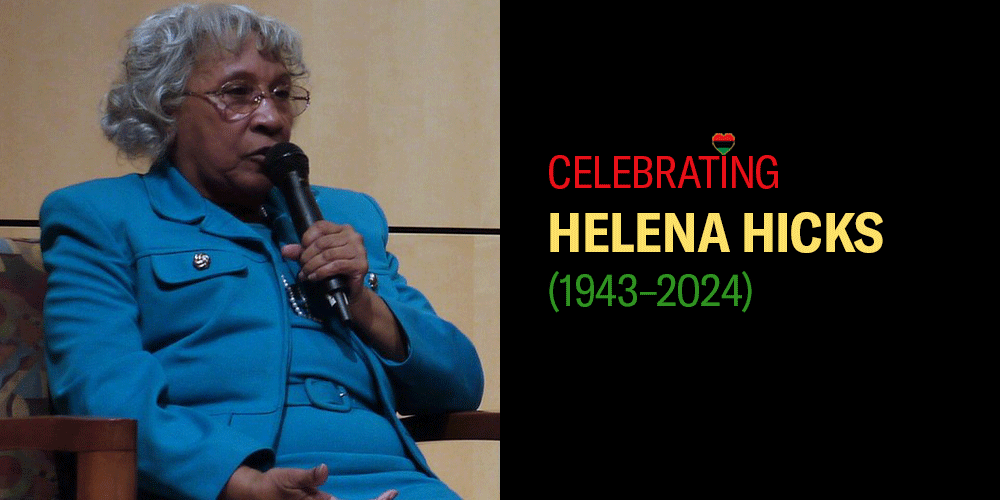
-
Helena Hicks (1943–2024)
Often recognized as the lead organizer of the lunch counter sit-ins at Read’s Drug Stores in Baltimore, Helena Hicks was a prominent civil rights advocate and voice for justice. Born on June 28, 1934, on Presstman St. in Baltimore, Hicks earned a Bachelor of Science in sociology at Morgan State, her M.S.W in Public Welfare and Psychiatric Counseling from Howard University in 1960, and later her PhD in Public Policy from the University of Maryland. While her academic achievements were beyond impressive Dr. Hicks is most known for the events that took place while she was a student at Morgan State University in January 1955. She along with five other students participated in a lunch counter sit-in at white only Read’s Drug Stores in Baltimore. It was among the first successful student led protests to which eventually led to desegregated lunch counters. Dr. Hicks went on to author several publications, taught courses at the University of Baltimore and Baltimore City and helped produce content for PBS on family daycare.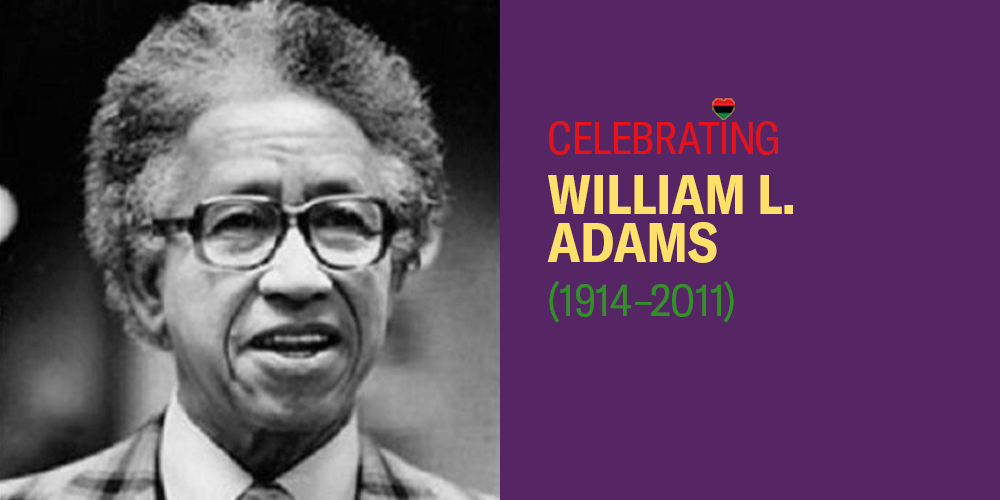
-
William L. Adams (1914–2011)
William Lloyd or “Willie” Adams was born on January 5, 1914. He moved to Baltimore in 1929 where he attended Dunbar High School and worked several jobs including running numbers. As a businessman and often known as a bankroll for many Black owned businesses, Adams led many organizations and developments in Baltimore. He co-founded the Parks Sausage Company, co-owned the development and construction firm A&A Development Corporation, and served as a consultant on the creation of the Maryland State Lottery. His lucrative dealings with money led him into legal issues and subpoenas before Congress a few times, but he was never found guilty. The Supreme Court overturned his convictions on the grounds that the state of Maryland had violated his Fifth Amendment rights. While Adams never held office himself, he was a significant figure in Maryland politics, and helped Parren Mitchell, the first Black U.S. Representative from Maryland get elected.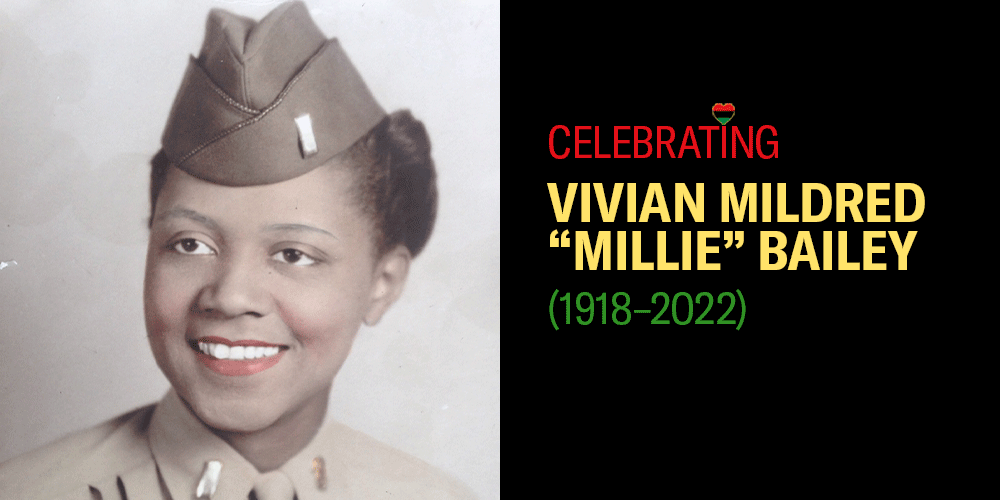
-
Vivian Mildred Bailey (1918–2022)
Washington D.C. native Vivian Bailey was born on February 3, 1918. “Millie” as she as affectionally known, entered the Women's Army Auxiliary Corps, later known as the Women's Army Corps, in December 1942 and served faithfully until January 1946 when she was honorably discharged with a host of medals and military recognitions. In 1970, she and her husband Bill moved to Columbia, Maryland where the two thrived and gave back tirelessly to the Howard County community. Among her countless honors, she received Towson University’s Distinguished Black Marylanders Award, Maryland’s Top 100 Women, Maryland State Governor’s Citations for her lifelong contributions, a Congressional Achievement for her many years of public service from the late Congressman Elijah Cummings, and the President's Lifetime Achievement Award for lifelong commitment to building a stronger nation through volunteer service. In October 2020, the Vivian Bailey Neighborhood Square on Lake Kittamaqundi in Columbia, Maryland was dedicated to her.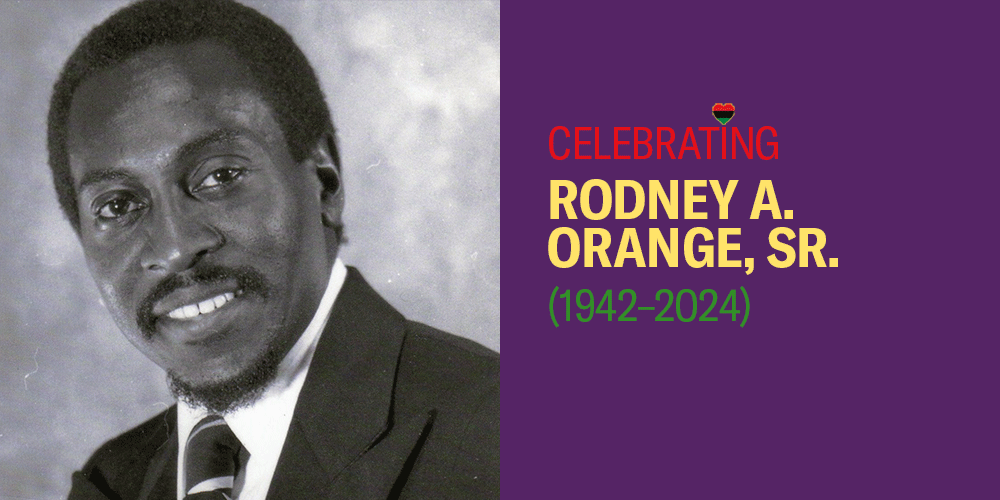
-
Rodney A. Orange Sr. (1942–2022)
Marine Corps veteran, star quarterback, and former president of the NAACP's Baltimore Branch, Rodney A. Orange Sr. was born on August 23, 1942. Orange was a graduate of Douglass Highschool where he graduated in 1960. Following graduation, he served the United States military faithfully in the Marine Corps for four years, eventually rising to the rank of sergeant, before receiving an honorable discharge in 1964. Orange also attended Morgan State University where he earned his Bachelor of Science Degree in Political Science in 1976. In 1993, Orange became the president of the NAACP’s Baltimore Branch where he served until 1998. Orange was widely known throughout Baltimore as a beloved figure.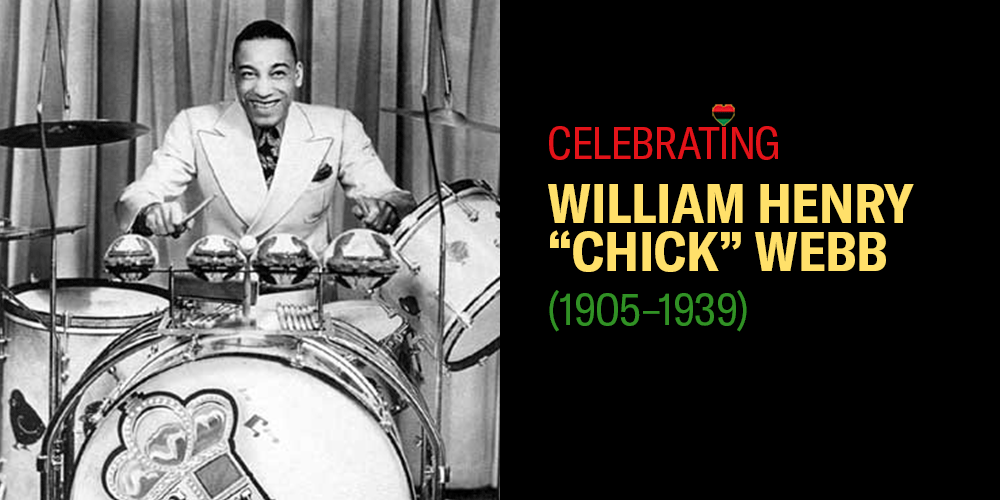
-
Chick Webb (1905–1939)
“Chick” was born William Henry Webb on February 10, 1905, in Baltimore, Maryland. At a very young age, Webb fell down stairsteps in his family’s home, crushing his vertebrae. He underwent surgery but his injury later progressed into tuberculosis, and he was never able to fully regain mobility. A specialist suggested a musical instrument to help untighten his bones and not long, he began playing the drums and began playing professional at the age of 11. At 17, Webb moved to New York where he led his own band in Harlem and played in numerous clubs and venue throughout the city. By 1931 he was known as one of the best bandleaders and drummers of swing, and in 1935 he featured a teenaged Ella Fitzgerald as a vocalist. Chick Webb was a dominant jazz musician who shattered barriers. On February 12, 1940, a crowded of over 7,500 people attended a benefit concert in his honor in Baltimore, Maryland.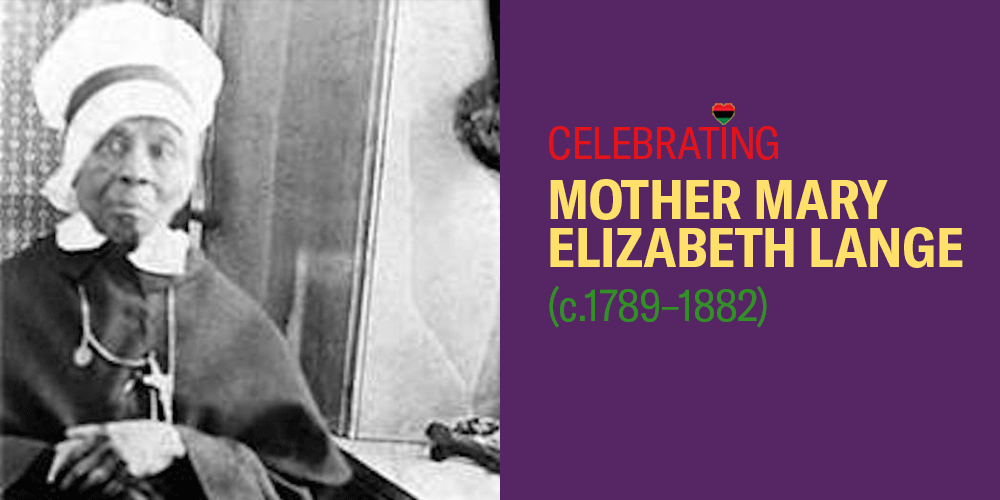
-
Mother Mary Elizabeth Lange (1789–1882)
Born Elizabeth Clarisse Lange in Saint Domingue in 1789, and later known as Mother Mary Elizabeth Lange, Lange was the founder of the first Black religious congregation in the United States. The daughter of refugees who fled to Cuba, Elizabeth excelled in Santiago where she received a good education before leaving in the early 1800s to the United States. She landed in a couple American cities, including Charleston and Norfolk before settling in Baltimore. The city had a number of free people of color, including many who had also fled from parts of the Caribbean, but there were not many schools to attend for the growing population. Lange fulfilled this need by opening a school in her home in Fells Point. Later, she along with Sulpicians priest James Nicholas Joubert founded the Oblate Sisters of Providence, the first religious congregation of women of African ancestry in the country. Eventually, Lange was named “Sister Mary” and appointed the first superior general of the new Catholic community. In 1991 she was inducted into the Maryland Women’s Hall of Fame and the Oblate Sisters of Providence continues to thrive in several foreign countries.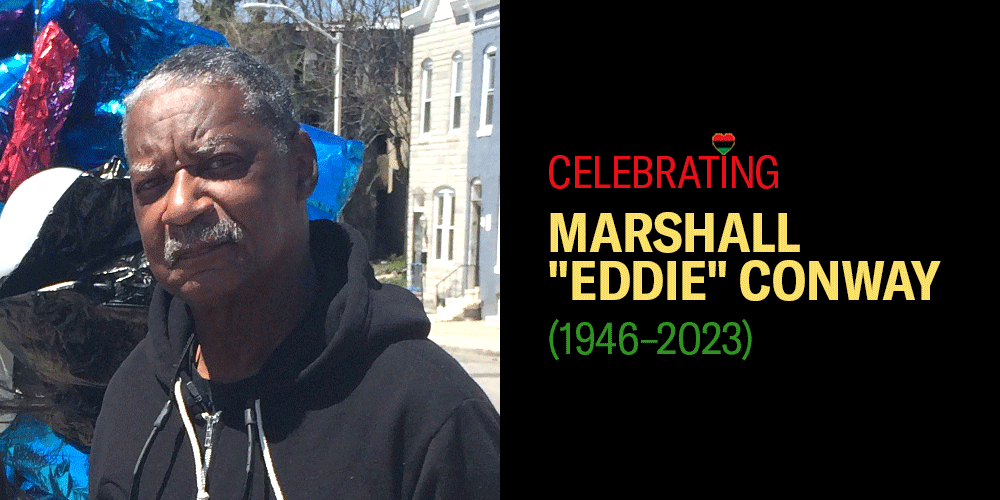
- Marshall “Eddie” Conway (1946–2023)
Prison reform advocate and member of the Black Panther Party, Marshall “Eddie” Conway was born on April 23, 1946, in Baltimore. In 1970, Conway was charged with killing a Baltimore police officer and injuring another, though he had always maintained his innocence. In 1971, he was sentenced to life in prison. Undeterred, Conway continued his activism while incarcerated, earning three college degrees, founding a chapter of the Black Panther Party for those on the inside, organizing the United Prisoners Labor Union, the Maryland Penitentiary Intercommunal Survival Collective, as well as a literacy program. After serving over 43 years, Conway was officially released in 2014 after the constitutionality of his trial was brought into question, with many claiming he was incarcerated as a political prisoner. His more recent contributions to society outside the walls include serving as a producer on The Real News Network where he hosted the weekly show “Rattling the Bars”, helping establish the People’s Free Medical Clinic, and authoring his memoir, Marshall Law: The Life and Times of a Baltimore Black Panther.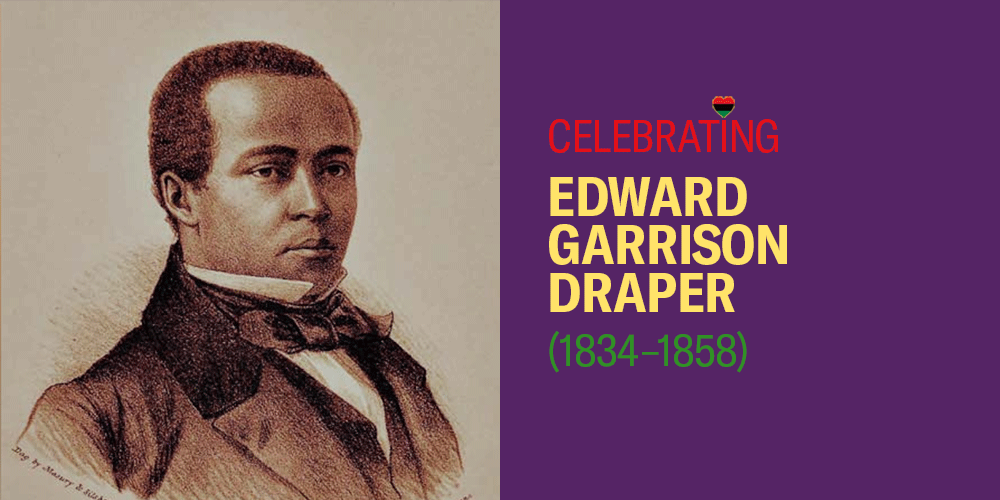
- Edward Garrison Draper (1834–1858)
Edward Garrison Draper was the first Black lawyer in the state of Maryland. Born in Baltimore in 1834, Draper’s educational advances led him to Dartmouth College where he received his law degree in 1855. However, despite having law degrees, few Black people in the 1800s were allowed to practice. Unsatisfied with Maryland’s state law, Draper petitioned to become admitted to the bar, but was denied by a court judge on the merit that Draper “qualified in all aspects to be admitted to the Bar in Maryland, if he was a free white citizen of the state.” Instead, the judge insisted that Draper go practice law in Liberia, which he did six days after the judge’s decision. 116 years later, the Supreme Court of Maryland finally honored Edward Draper, posthumously admitting him to the Maryland bar on October 27, 2023.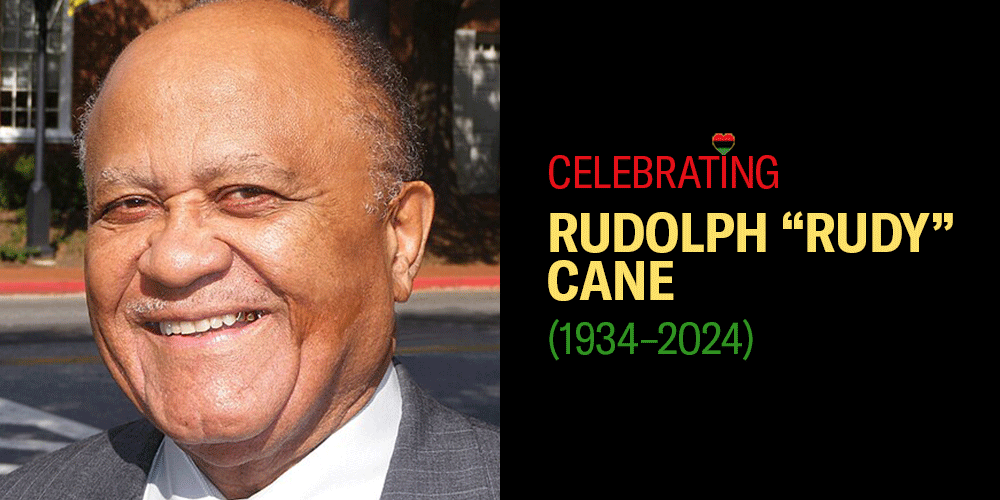
- Rudolph “Rudy” Cane (1934–2024)
Rudy C. Cane was the first Black man to represent Maryland’s Eastern Shore in the Maryland House of Delegates. Born in 1934 in Marion, Maryland, Cane represented Dorchester and Wicomico Counties (District 37A) for 15 years before retiring in 2014. In his role, he was a member of several committees such as the Joint Committee on the Selection of State Treasurer, Environmental Matters Committee, and Deputy Whip in the House. A veteran, scholar, and community member, Cane attended Carter G. Woodson Highschool before serving in the United States Army as a radar specialist and earning the rank of sergeant. His educational endeavors led him to attend Maryland State College (University of Maryland) and Coppin College (Coppin State University) while his additional duties included serving on the Board of Directors for Shore Up, Inc., chairman of the Maryland Legislative Black Caucus, and a member of the Maryland State Advisory Committee to the U.S. Commission on Civil Rights.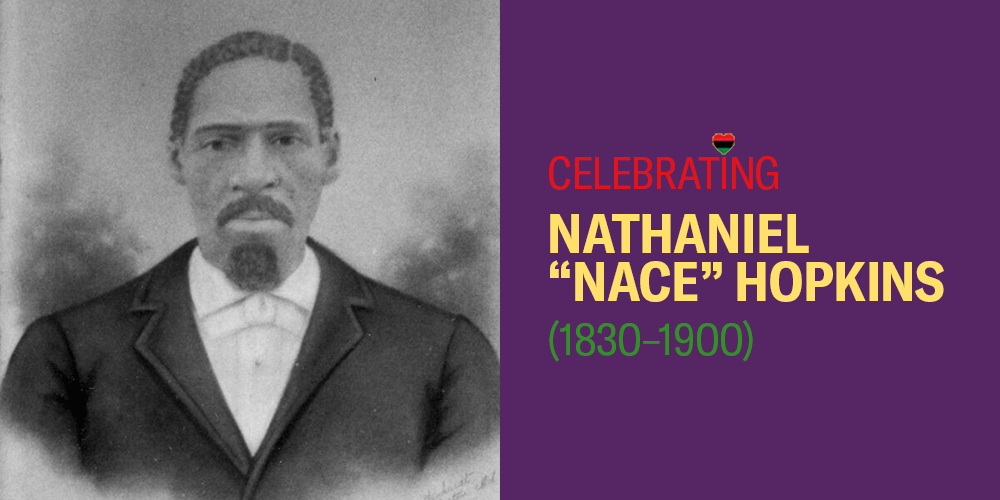
- Nathaniel “Nace” Hopkins (1830–1900)
Nathaniel Hopkins, “Nace” or “Uncle Nace” as he was affectional called, was born into slavery in 1830 in Trappe, Maryland. In 1863, Hopkins enlisted in United States Colored Troops of the Union Army, but his career ended early in 1864 when he was sent home on sick furlough. He returned to Trappe and throughout the years helped newly freed Blacks in Talbot County following the Emancipation Proclamation by establishing Trappe’s first Black school and the African Church, which later became Scotts United Methodist Church. Hopkins is also famous in Talbot County for founding the county’s Emancipation Day in 1867, which takes place annually to commemorate Maryland’s emancipation of people who were enslaved as well as to encourage the future achievements of Black people. The celebration, known colloquially as Uncle Nace Day, is one of the longest continuous public emancipation parades on the Eastern Shore and in the United States.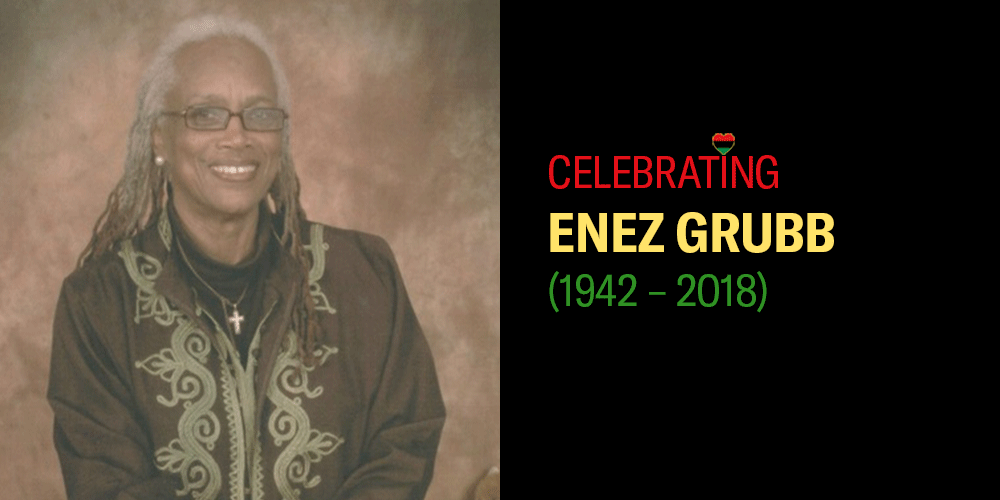
- Enez Grubb (1942–2018)
The woman who would later co-chair the Cambridge Nonviolent Action Committee was born on December 18, 1942, in Cambridge, Maryland. Enez Grubb dedicated her life to Christ at an early age and was eventually ordained as Reverend, serving many churches in Maryland including the African Methodist Episcopal Church and Union Chapel AME Church. Rev. Grubb was a graduate of Mace Lane High School and Sojourner-Douglass College, where she received her Bachelor of Arts and served in the United States Reserve for 16 years. At the age of 19 she led many marches in downtown Cambridge, conducted sit-ins at lunch counters that refused to serve Black people, and picketed businesses that refused to hire Black people. Her leadership challenging racially discriminatory policies was essential to the integration of the City of Cambridge Rescue Fire Department and the Cambridge Arena Pool. Rev. Grubb served as Vice President of the Harriet Tubman Coalition, a member of the Good Shephard Society, and the Cambridge Housing Review Board and Director of Sojourner-Douglass College, her alma mater.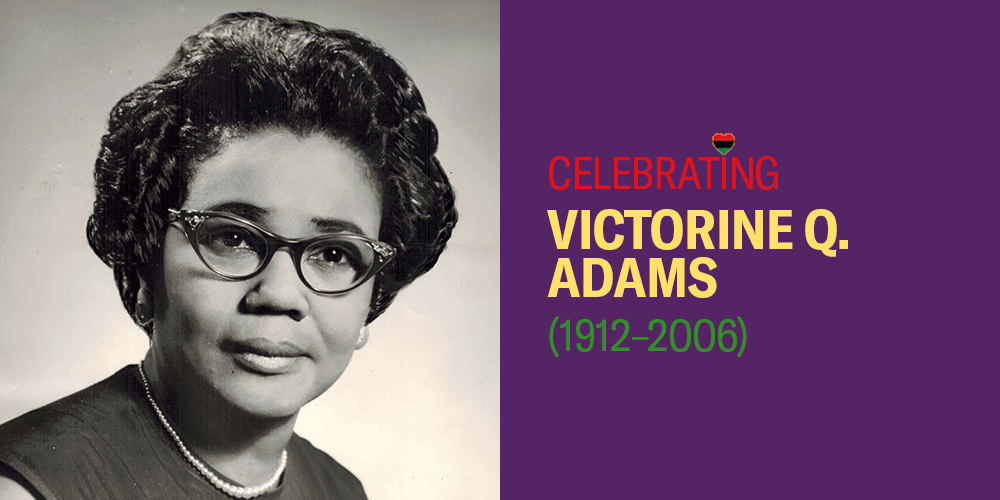
- Victorine Q. Adams (1912–2006)
Born on April 28, 1912, Victorine Quille Adams was the first Black woman to serve on the Baltimore City Council. Adams began her trailblazing efforts as a teacher in the segregated Baltimore Public School system. She was a graduate of Frederick Douglass High School and Morgan State College (University). In 1943 she become one of five women who chartered the National Council of Negro Women in Baltimore and three years later founded the Colored Women’s Democratic Campaign Committee, encouraging Black women to register to vote and run for public office. In 1966 she did just that, running for Maryland’s House of Delegates successfully until she resigned after winning a seat on the Baltimore City Council. Among her many accomplishments, Adams was the owner of a clothing store for women, the Charm Center, co-founder of Woman Power, Inc., and taught a six-week course called Project Beauty and Charm which taught women and girls how to improve their charm, grace, and self-esteem.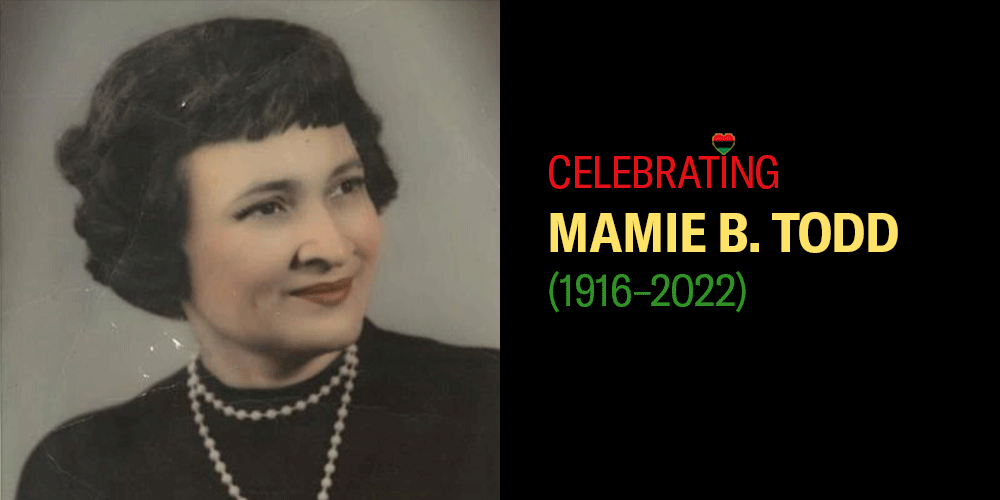
- Mamie B. Todd (1916–2022)
The granddaughter of people who were enslaved, Mamie Bland Todd was born in 1916 in Dinwiddie, Virginia who grew up to be an innovator for Maryland. Todd took her teaching skills, instilled in her by her grandfather and hero, Edward D. Bland, and expanded upon them at Virginia State College (University) where she joined Delta Sigma Theta Sorority, Inc., and the University of Pennsylvania. In 1941 she left Virginia and moved to Baltimore where she began working in childcare services, volunteering in her community, and organizing with the NAACP. Throughout her esteemed work, Todd’s commitment to children was clear as she led the development of the State of Maryland’s Social Services Administration’s Child Protective Services Agency – with the goal of ensuring that those who abused children were investigated and that abused children received proper therapeutic treatment. Todd also helped establish the University of Maryland School of Social Work, which made Maryland one of the first states to establish undergraduate social work programs. She lived to be 105 years old.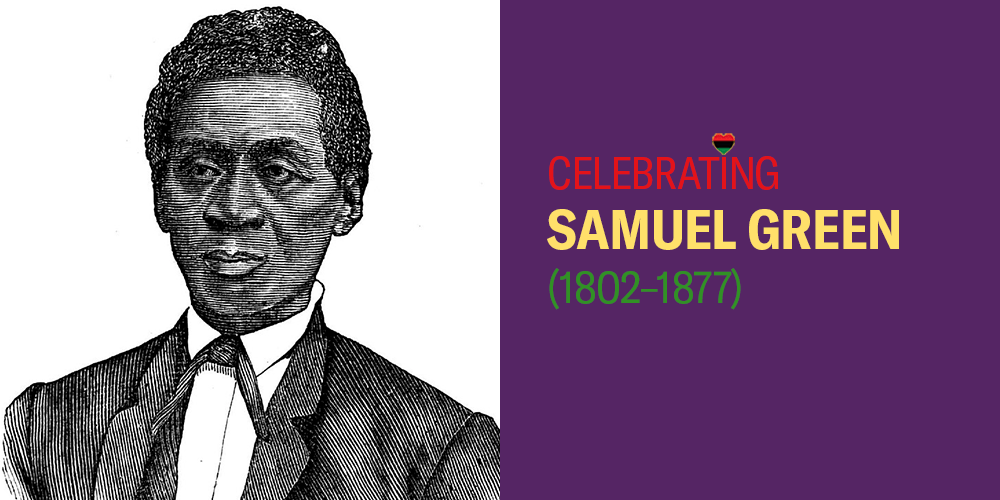
- Samuel Green (1802–1877)
Samuel Green was born into enslavement in East New Market, Maryland. He worked in the fields in Dorchester County before earning enough money to purchase his freedom and his wife’s in 1842. In 1857, Green was caught with a copy of the anti-slavery novel Uncle Tom’s Cabin and was tried and convicted. He received a 10-year sentence but was pardoned by the Maryland Governor after five years served. Green was also a conductor for the Underground Railroad, a minister, and co-founder of the Centenary Biblical Institute, now Morgan State University.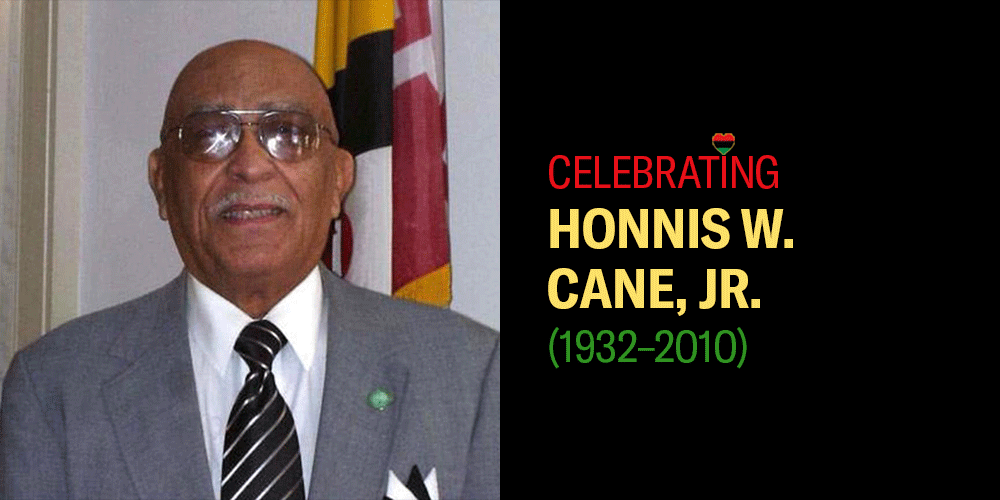
- Honiss W. Cane, Jr. (1932–2010)
Honiss Cane, Jr. was a hero for Pocomoke City, on Maryland’s Eastern Shore. Born on January 31, 1932, Cane worked tirelessly to end segregation in Pocomoke City. Cane was the lead among a group of activists who pursued a history-making lawsuit bearing his name that remains one of the most cited precedents in voting rights litigation in Maryland today, Cane v. Worcester County. That hard-fought case challenged the at-large election system that had locked Black people out of Worcester County office for 250 years and led to the election of the County's first Black Commissioner in 1995.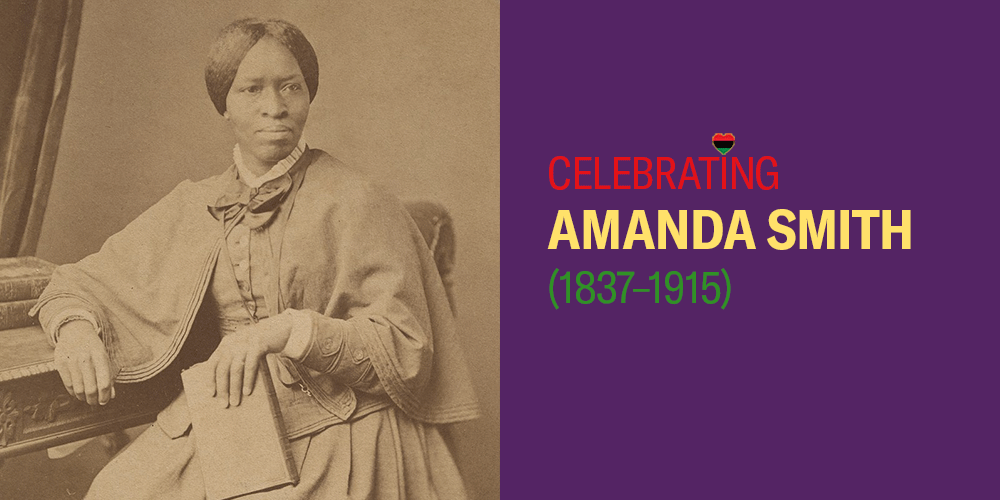
- Amanda Smith (1837–1915)
A minister, missionary, and child advocate, Amanda Smith is famous for the creation of the Amanda Smith Orphanage and Industrial Home for Abandoned and Destitute Colored Children. Born into enslavement on January 23, 1837, in Long Green, Maryland, Smith served as an evangelist and leader of the Wesleyan Holiness Movement. Her work led her to preach in several countries including Sierra Leone, Great Britain, and Liberia. In 1893, Smith published her autobiography, The Story of the Lord's Dealings with Mrs. Amanda Smith the Colored Evangelist.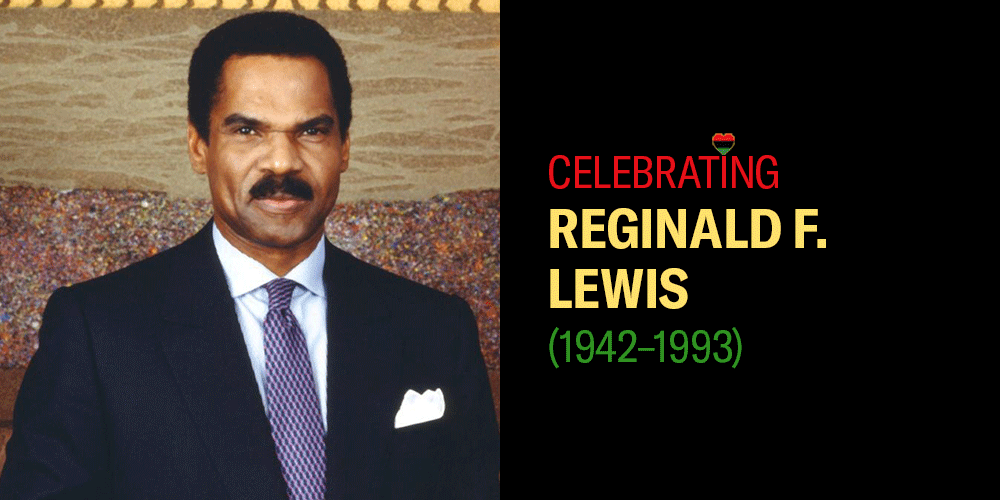
- Reginald F. Lewis (1942–1993)
Known as the first Black man to build a billion-dollar company in the U.S., Reginald Lewis was born December 7, 1942, in East Baltimore. As an entrepreneur and groundbreaking business tycoon, Lewis was a powerhouse on the economic front, as well as the social justice movement. The Reginald F. Lewis Foundation, named in his honor, was one of the largest African American foundations in the world and remains dedicated to addressing the legacy of institutional discrimination against Black people by investing in Black futures. Presently, the foundation has given away over $30 million in grants. His acute focus and business model made him one of the richest Black men in America in the 80s. The Reginald F. Lewis of Maryland African American History and Culture in the heart of Baltimore is also named after him.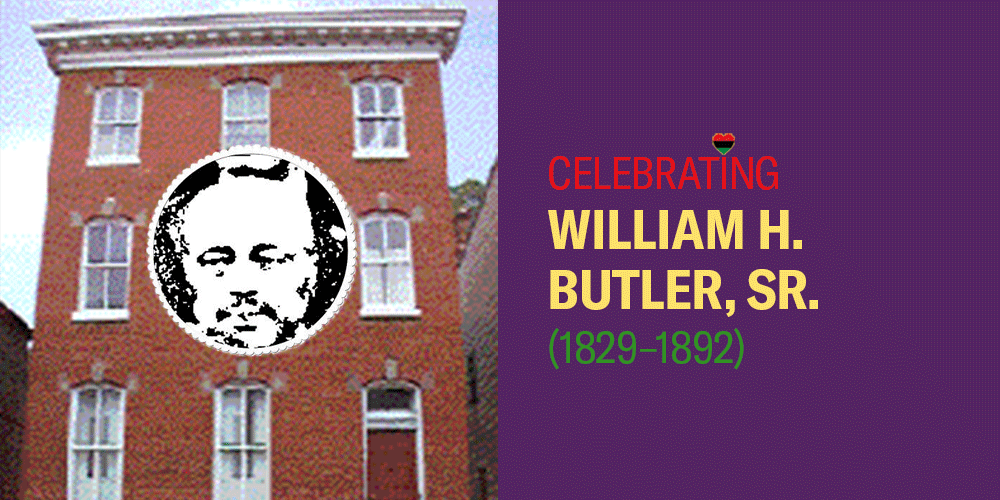
- Willam H. Butler, Sr. (1829–1892)
William H. Butler, Sr. was the first Black man to be elected to state office in Maryland. As a resident of Annapolis, Butler climbed his way up the city's political ladder to serve on the Annapolis City council in 1873. His success didn’t stop there – Butler would also own over 25 properties in Maryland, making him one of the wealthiest Black people at the time. As a civic leader, Butler used his capital and property ownership to help build institutions essential to his community, including the Maryland Colored Baptist Church, now First Baptist Church in Annapolis.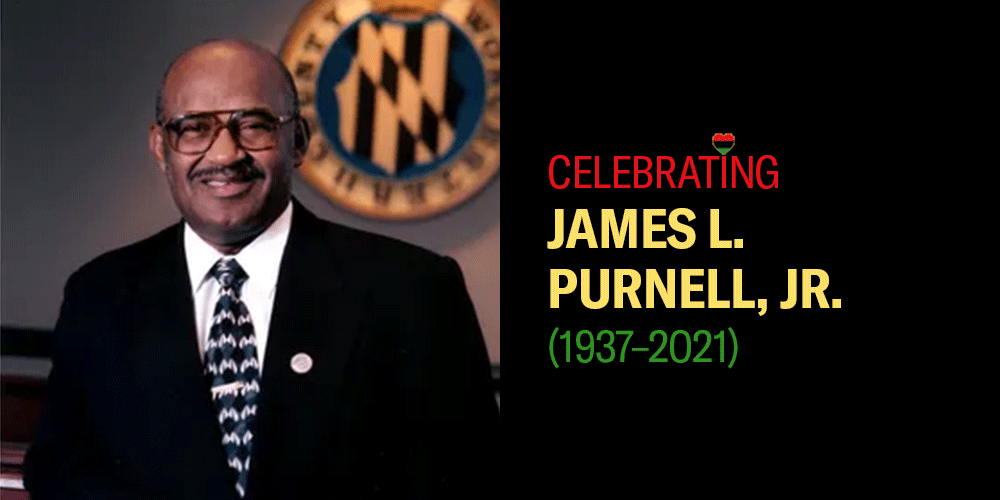
- James L. Purnell, Jr. (1937–2021)
Born on July 26, 1937, in Berlin, Maryland, James Lee Purnell Jr. was the first Black man elected to public office in Worcester County. As a social activist and politician, Purnell served several organizations in his community, including as President of the Worcester County NAACP Chapter. Purnell partnered with the ACLU as a lead plaintiff in a lawsuit to create fair voting districts for Black residents in Worcester County. Ultimately, Purnell served on the Worcester Board of County Commissioners for 20 years.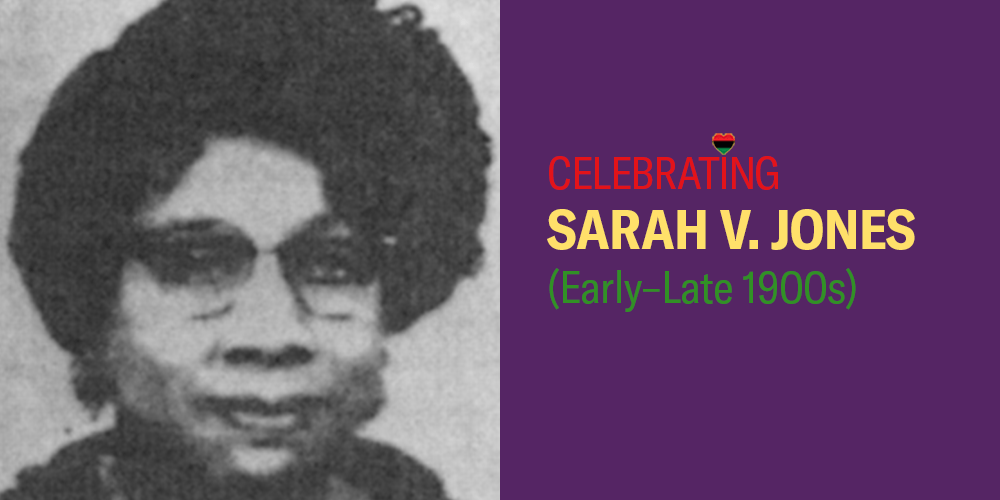
- Sarah V. Jones (Early–Late 1900s)
As a Black woman living and working during the time of Jim Crow, Sarah Jones's commitment to higher learning was exceptional, to say the least. In 1922, Jones started working in Anne Arundel County Public Schools, eager to educate Black children. Her methods were so exemplary that it only took her a few years to become principal of the Churchton School in southern Anne Arundel County. She was later elevated as the first Black woman superintendent of all Colored Anne Arundel County Public Schools. Jones held her position for over 40 years before she retired. Jones was also a member of the NAACP, Morgan State Alumni Association, and a charter member of Phi Delta Kappa.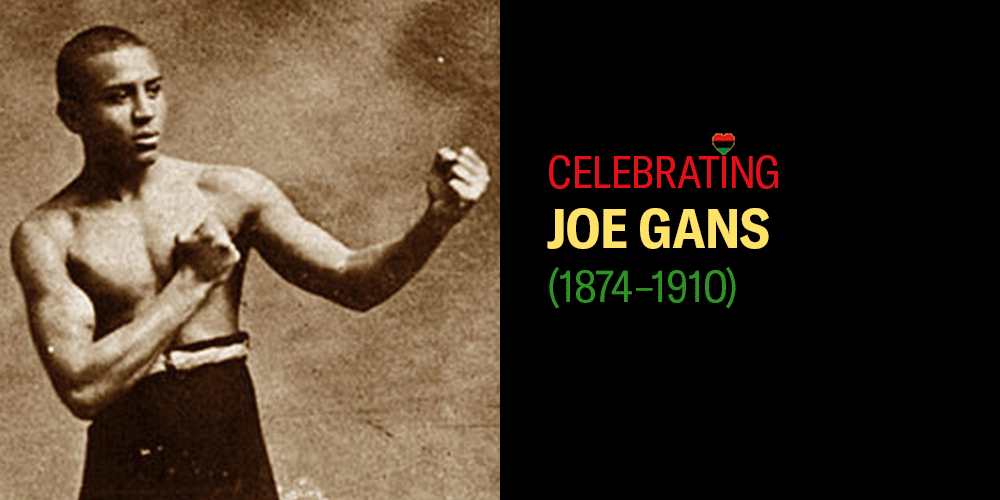
- Joe Gans (1874–1910)
Referred to as the greatest lightweight boxer of all time, Joe Gans became the first Black world boxing champion of the 20th century. Gans was born November 25, 1874, in Baltimore, where he first started boxing professionally as early as 17. However, the racism of the time was felt even in the boxing ring, as Gans was compelled by boxing promoters to allow white fighters to last the scheduled number of rounds with him – instead of him knocking them out sooner. Gans would win the world lightweight title by defeating Frank Erne in 1902 in a round-one knockout. Gans was inducted into The Ring magazine’s Boxing Hall of Fame in 1954.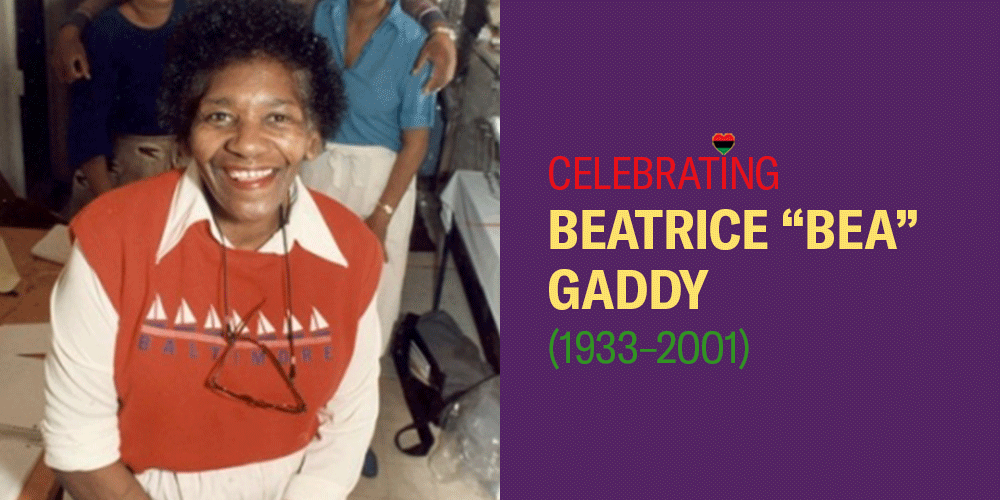
- Beatrice "Bea" Gaddy (1933–2001)
Beatrice “Bea” Gaddy was like a second mother to residents in Baltimore. True to her calling, she was widely considered the “Mother Teresa” of the city. Gaddy served her community in various ways, including as a member of the Baltimore City Council and as an advocate for people who are unhoused, financially challenged, or hungry. In the early 1970’s Gaddy offered her home as a distribution center for food and clothing to those in need. In 1981, Gaddy founded the Patterson Park Emergency Food Center to collect food donations and distribute them to community members. In 2006, Gaddy was inducted into the Maryland Women’s Hall of Fame and her annual Bea Gaddy Thanks for Giving Campaign remains an annual tradition in Baltimore, serving over 3,000 meals on-site and delivering over 50,000 more.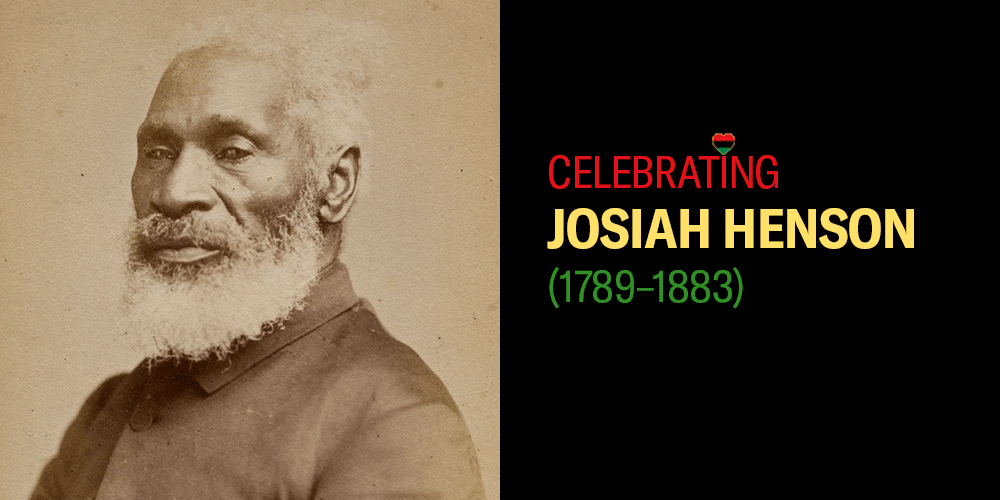
- Josiah Henson (1789–1883)
Josiah Henson was an abolitionist, minister, and author born on June 15, 1789, in Charles County, Maryland. Born into enslavement, Henson found freedom by escaping to Ontario, Canada, where he would later establish a school for other people who had escaped bondage. As an author, Henson wrote his autobiography The Life of Josiah Henson, Formerly a Slave, Now an Inhabitant of Canada, as Narrated by Himself, in 1849. Additionally, Henson was also the inspiration for Harriet Beecher Stowe’s widely successful novel Uncle Tom’s Cabin, though he never recieved any money from its success. Henson’s school in Canada is known as the Dawn Settlement and a provincial plaque was placed by the Ontario Government to memorialize the land.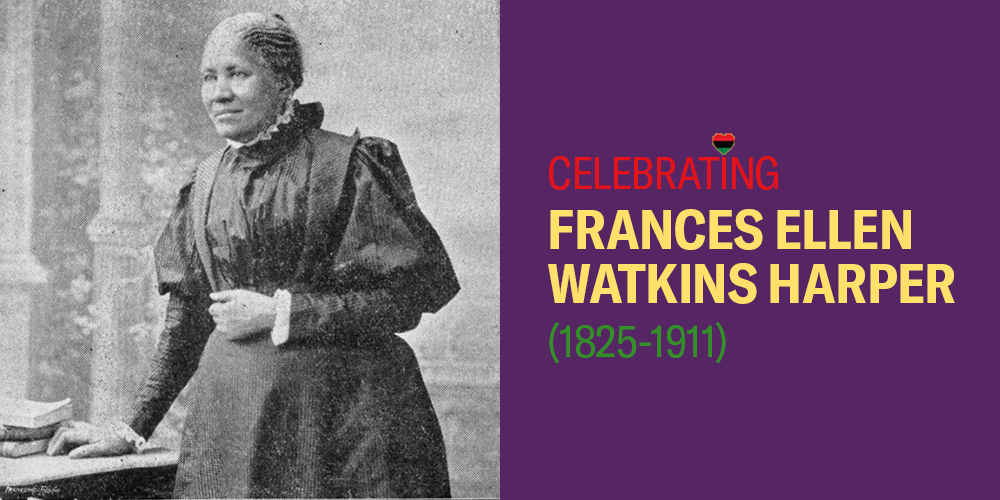
- Frances Ellen Watkins Harper (1825–1911)
Born in Baltimore on September 24, 1825, Frances Ellen Watkins Harper was among the first African American women published in the United States. She held various roles in her life including as an abolitionist, suffragist, public speaker, educator, political activist, and poet. By the age of 21, she wrote her first poetry book, Forest Leaves, and by age 67 she had written several collections that would have great commercial success, including Poems on Miscellaneous Subjects, Two Offers, and Iola Leroy, which placed her among the first Black women to publish a novel in America.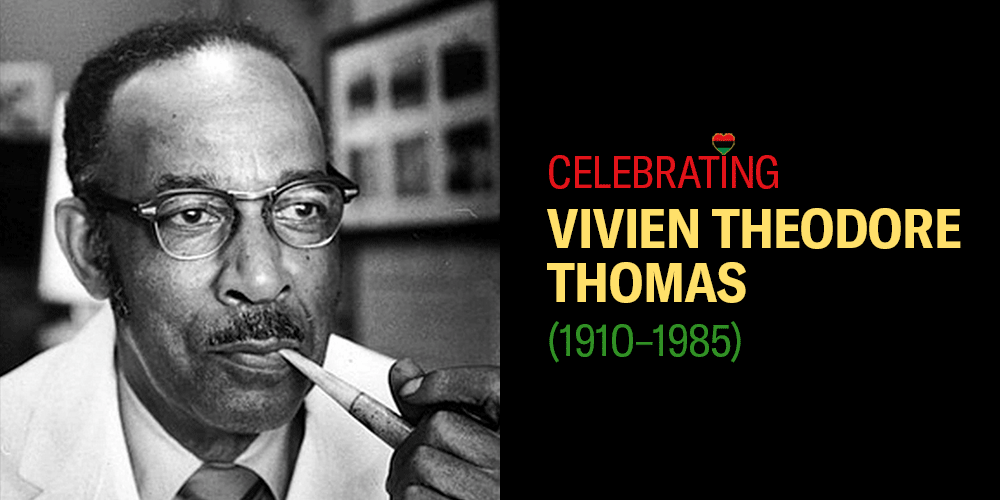
- Vivien Theodore Thomas (1910–1985)
Dr. Vivien Theodore Thomas was born on August 29, 1910, in New Iberia, Louisiana. Thomas was a laboratory supervisor who created a procedure used to treat cyanotic heart disease, previously known as blue baby syndrome. For 35 years Thomas served as supervisor of surgical laboratories at John Hopkins in Baltimore. In 2004, a biographical film was made about his iconic work and the racism he faced in the health industry titled Something the Lord Made, available on HBO Max. Even though Thomas had no formal education past high school, he was awarded an honorary doctorate from John Hopkins School of Medicine and was a cardiac surgery pioneer.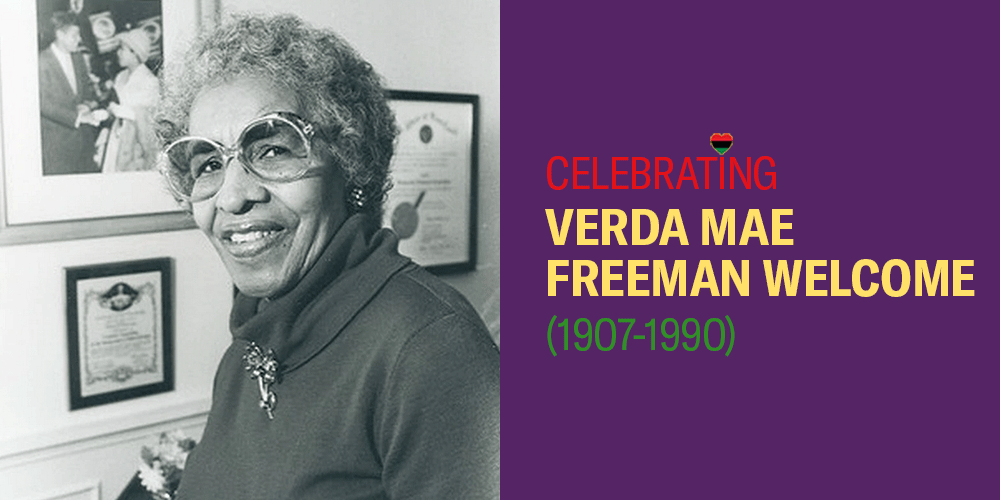
- Verda Mae Freeman Welcome (1907–1990)
Born on March 18, 1907, in Lake Lure, North Carolina, Verda Mae Freeman Welcome was the second Black woman to be elected to a state senate in the United States. Welcome was a community activist, politician, civil rights advocate, and educator who taught in Baltimore City Public Schools for eleven years. In 1959, she was the first Black woman elected to the Maryland House of Delegates. Welcome was awarded honorary degrees from Howard University and the University of Maryland.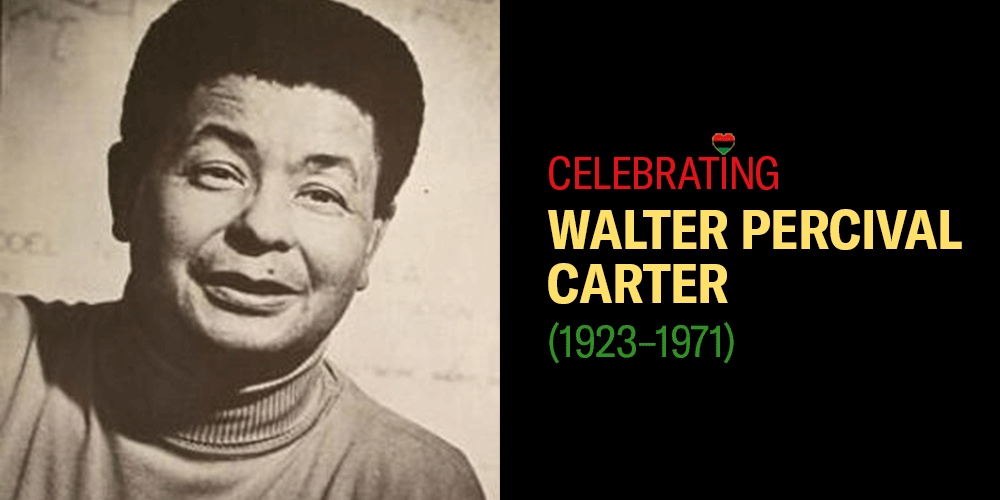
- Walter Percival Carter (1923–1971)
Known as the ‘Martin Luther King of Maryland,’ Walter Percival Carter was born on April 29, 1923, in Monroe, North Carolina. Carter was a central figure in Baltimore during the Civil Rights Movement, well known for his skill in organizing demonstrations against discrimination throughout Maryland. He is best known for being the chairman of the Baltimore Chapter of the Congress of Racial Equality (CORE) and as the Maryland coordinator for the 1963 March on Washington. He is also the father of Senator Jill P. Carter, a current champion of many race equity issues in the General Assembly.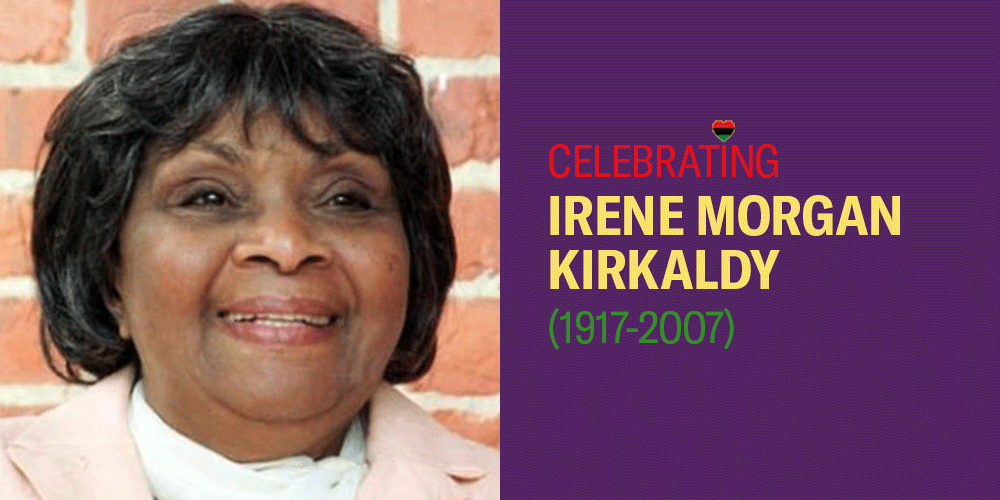
- Irene Morgan Kirkaldy (1917–2007)
Born in Baltimore on April 9, 1917, Irene Morgan Kirkaldy (previously Irene Amos Morgan) is best known for her bus protest, which is seen as a precursor to the wide-spread Montgomery bus boycotts of 1955. While traveling to Gloucester County, Virginia, to visit her mother, Kirkaldy was arrested in Middlesex County for refusing to give up her seat in the ‘white section’ of an interstate bus. She later consulted with attorneys from the NAACP Legal Defense Fund in a case that went all the way to the Supreme Court – Irene Morgan v. Commonwealth of Virginia. While the landmark 1946 decision ruled the Virginia law unconstitutional, it would not be enforced for decades after.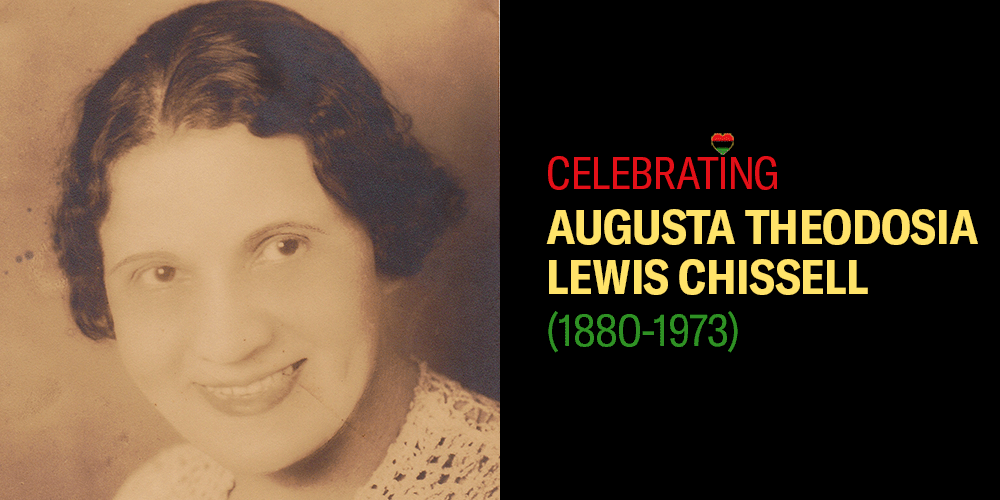
- Augusta Theodosia Lewis Chissell (1880–1973)
Augusta Theodosia Lewis Chissell was born in Baltimore around the year 1880. She lived in a three-story brick row home on Druid Hill Avenue. Her activism began with neighbor and future collaborator Margaret Gregory Hawkins when the two formed the DuBois Circle, an African American women’s club that started with a focus on literature and arts but then expanded to political and civic activities. Chissell dedicated her time to improving the lives of women and Black people in Baltimore. She served as the secretary of the Colored Women’s Suffrage Club, a columnist for the Baltimore Afro-American, and one of the founding members of the Baltimore branch of the NAACP.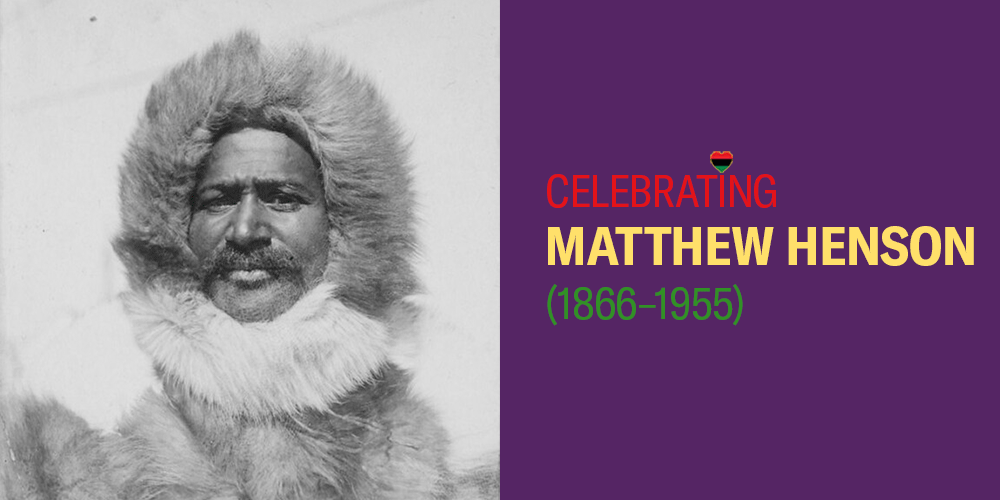
- Matthew Alexander Henson (1866–1955)
The son of freeborn Black sharecroppers, Matthew Alexander Henson was born on August 8, 1866, in Charles County. For nearly twenty-three years Henson was the “first man” of explorer and mentor Robert Peary, whom he accompanied on seven voyages to the Arctic. A globetrotter, Henson traveled to many countries and continents around the world, but he is most known for his participation in the expedition on April 6, 1909, where he was among the first people to reach to the North Pole. Because Henson was a Black man, he was largely overlooked while Peary received most of the accolades and credit. It wasn’t until 1937 following the release of his memoir, A Negro Explorer at the North Pole, that a 70-year-old Henson finally received the recognition he deserved. In 1944, he was awarded a Congressional Medal of Honor.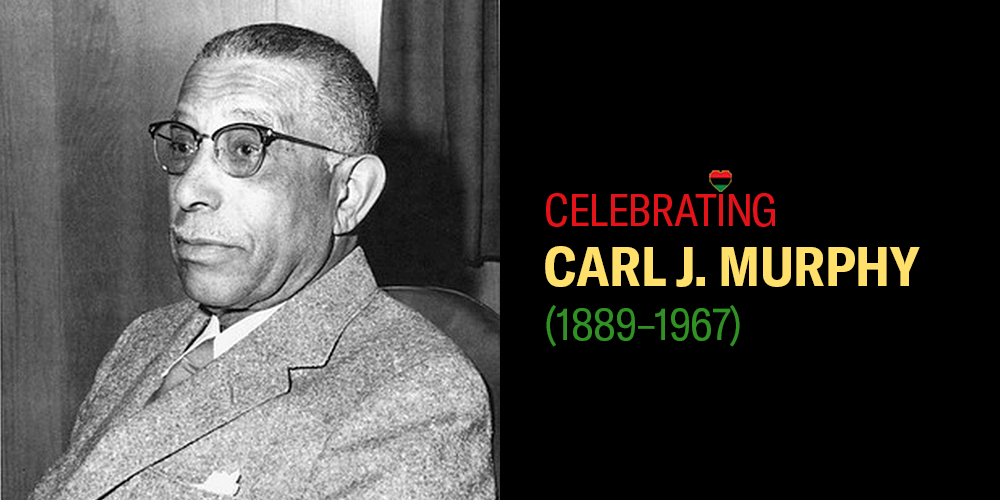
- Carl J. Murphy (1889–1967)
Journalist, educator, civil rights leader, and publisher Carl J. Murphy was born on January 17, 1889, in Baltimore. Raised into the life of publishing, Murphy's father, John H. Murphy, Sr. founded the Baltimore Afro-American newspaper. Murphy followed his father’s example upon his death and assumed control of the paper in 1922. At its peak, the Afro-American published nine editions in thirteen major cities. He led the paper to national prominence for nearly half a century. The state-of-the-art Murphy Fine Arts Center at Morgan State University is named in his honor.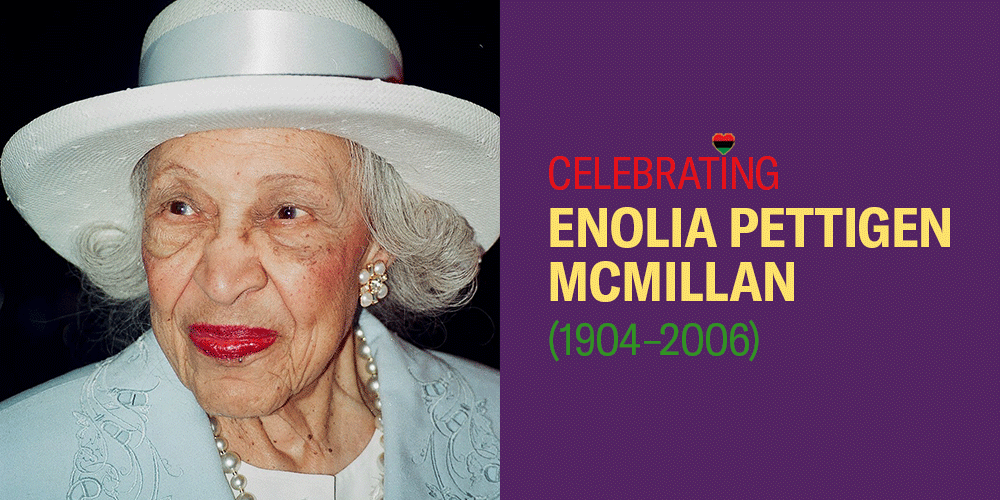
- Enolia Pettigen McMillan (1904–2006)
Born on October 20, 1904, in Willow Grove, Pennsylvania, Enolia McMillian was an established educator, community leader, and civil rights activist. McMillian holds the distinguished honor of being the first female president of the NAACP. She received a master’s degree from Columbia University and authored the thesis, Some Factors Affecting Secondary Education for Negroes in Maryland Counties, which challenged Maryland’s racist school system. In 1990, she was inducted into the Maryland Women's Hall of Fame.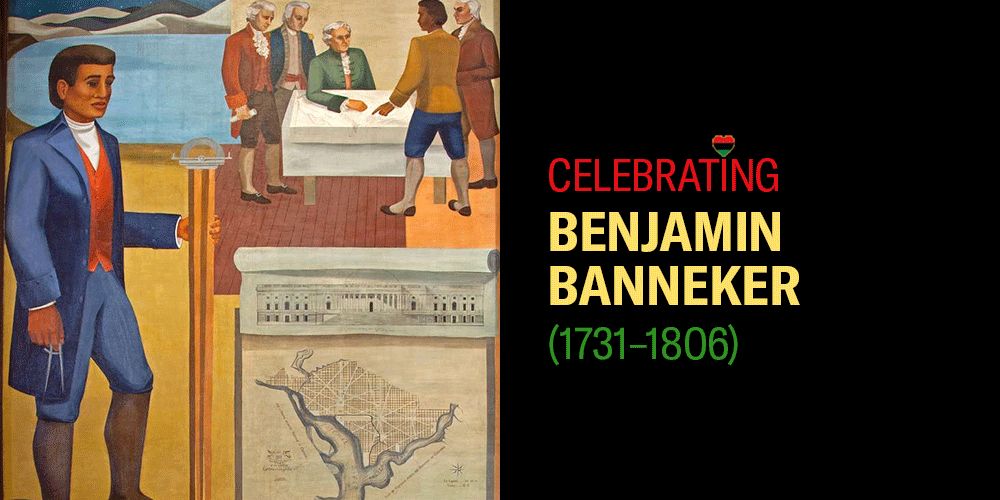
- Benjamin Banneker (1731–1806)
The largely self-taught mathematician and astronomer Benjamin Banneker was born on November 9, 1731, in Ellicott’s Mills in Baltimore County. Genius doesn’t quite capture the brilliance of Banneker. Having been afforded little to no formal education, he still managed to be one of the most paramount figures of science in American history. A farmer, surveyor, and almanac author, among other services, he is known for assisting Major Andrew Ellicott in establishing the original borders of the District of Columbia. Banneker also corresponded with Thomas Jefferson on slavery and racial equality, and in 1789, he made astronomical calculations that enabled him to successfully forecast a solar eclipse.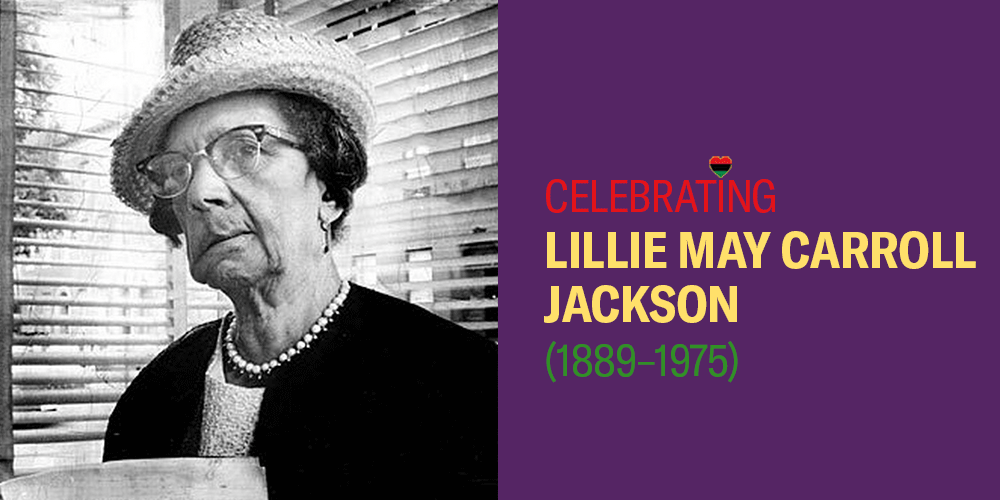
- Lillie May Carroll Jackson (1889–1975)
Affectionately known as “Dr. Lillie,” “Ma Jackson,” and the “mother of the civil rights movement,” Lillie May Carroll Jackson was born on May 25, 1889, in Baltimore. As an educator, organizer of the Baltimore branch of the NAACP, and pioneering civil rights activist, Jackson was a powerhouse for Maryland and instrumental in the integration of Baltimore schools after the landmark Brown v. Board of Education decision. She set in motion the tactic of non-violent resistance to racial segregation used by Martin Luther King, Jr., and others.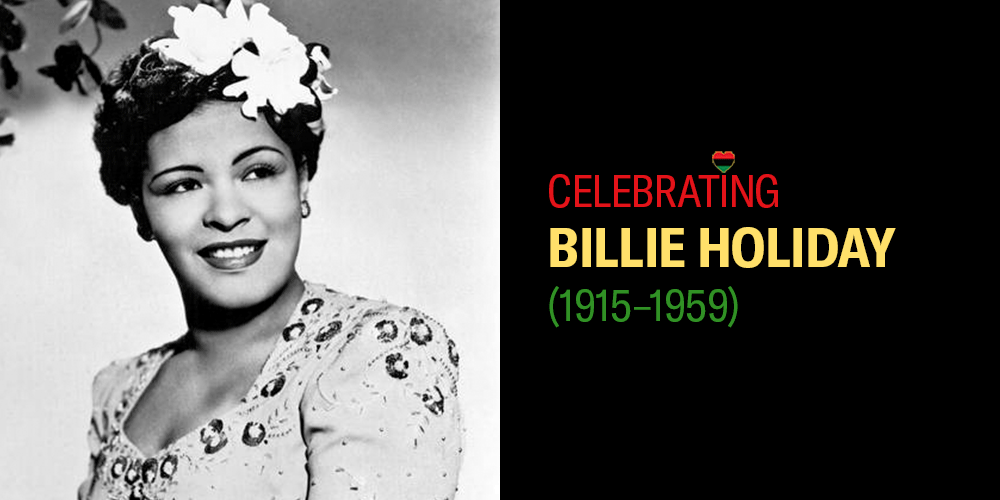
- Billie Holiday (1915–1959)
One of the most significant jazz musicians of all time, Billie Holiday (born Eleanora Fagan) was born on April 7, 1915. There has been great speculation that Holiday was actually born in Baltimore, but it is widely accepted that her mother, Sadie Fagan, left home in Baltimore to have the birth in Philadelphia and returned shortly after. The Nicknamed ‘Lady Day’ Holiday began singing at nightclubs in Harlem before eventually selling out concerts at Carnegie Hall. Holiday made several albums and hit songs including “What a Little Moonlight Can Do”, “Miss Brown to You”, and the haunting “Strange Fruit” which protested the lynching of Black Americans and became anthemic of the Civil Rights Movement. Holiday won four Grammy Awards, was inducted into the National Rhythm & Blues Hall of Fame and the Rock and Roll Hall of Fame, and there is a monument in her honor on Pennsylvania Avenue in Baltimore.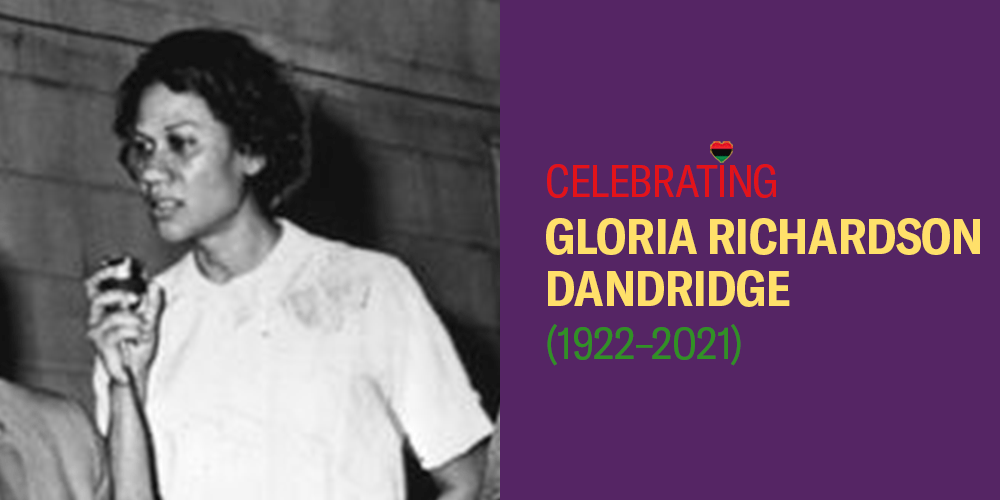
- Gloria Richardson Dandridge (1922–2021)
Born on May 6, 1922, in Baltimore, Gloria Richardson Dandridge (previously Gloria St. Clair Hayes) is best known as the leader of the Cambridge movement. Along with the Cambridge Nonviolent Action Committee, the movement was a saga of protests, civil rights demonstrations, and struggles on Maryland’s Eastern Shore that led to the desegregation of all schools, recreational areas, and hospitals in the state. The movement was the longest period of martial law in the United States since 1877. Richardson was also one of the signatories to the “Treaty of Cambridge” signed in July 1963 with Attorney General Robert F. Kennedy.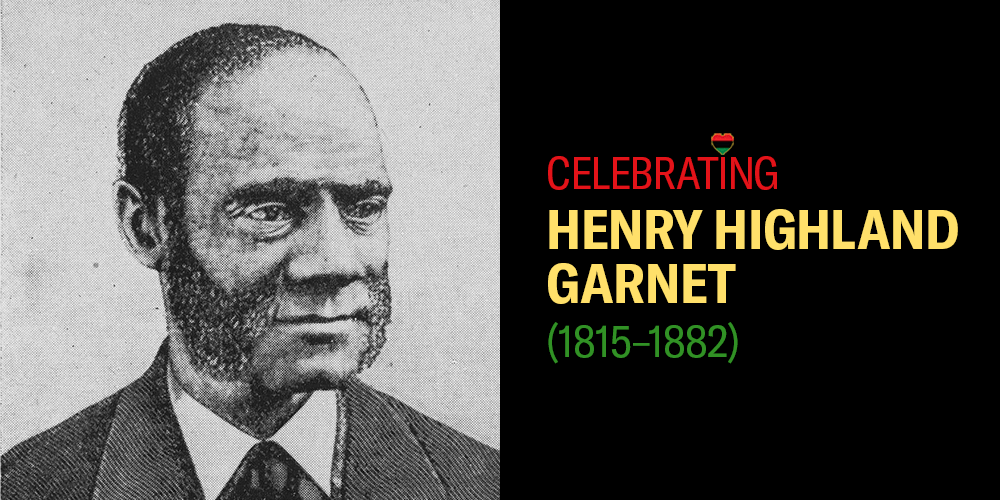
- Henry Highland Garnet (1815–1882)
A renowned abolitionist, orator, minister, and educator from New Market (now Chesterville), Maryland, Henry Highland Garnet was born into enslavement on December 23, 1815, and escaped with his family to New York City. As an incredible orator and fierce opponent to slavery, Garnet is well known for his “Call to Rebellion” speech in 1843, which encouraged people who were enslaved to free themselves by rising against those who enslaved them. In 1865, Garnet became the first Black speaker to preach a sermon in the House of Representatives.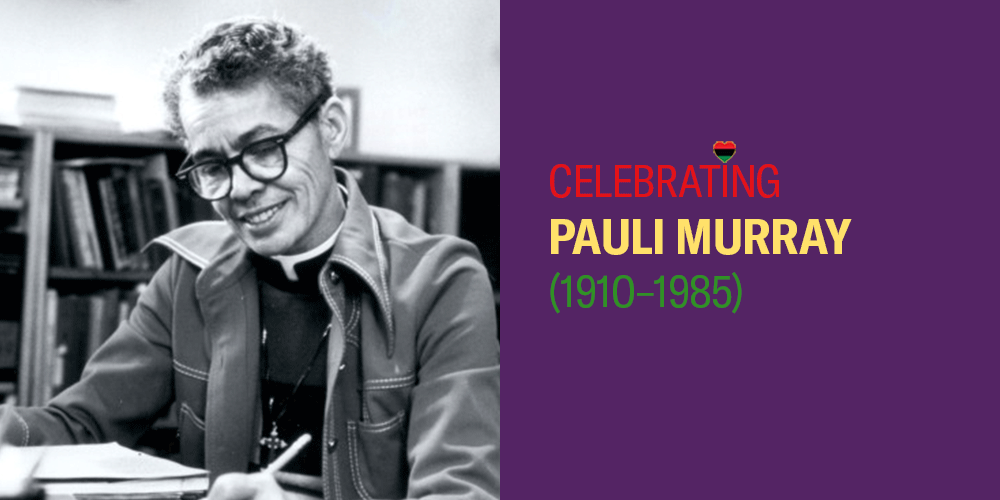
- Pauli Murray (1910–1985)
Born on November 20, 1910, in Baltimore, Anna Pauline Murray was a civil rights activist, women’s rights activist, author, Episcopal priest, and lawyer. It is important to note that Murray did not conform to society’s gender norms and is highly regarded among LGBTQ+ people. Murray was the first African American woman ordained as an Episcopal priest. Murray holds several degrees, including one from Howard University, graduating top of the class, and was also the first African American to receive a doctorate of judicial science degree from Yale Law School. In 1965, Murray served on the board of directors of the national ACLU and played a key role in turning the organization’s attention to gender inequality and made it a priority. In addition, Murray served on the Presidential Commission on the Status of Women, coauthored a brief with Ruth Bader Ginsburg for the Reed v. Reed case, and wrote the book, States’ Laws on Race and Color, which was called the “bible” of the Civil Rights Movement by Thurgood Marshall.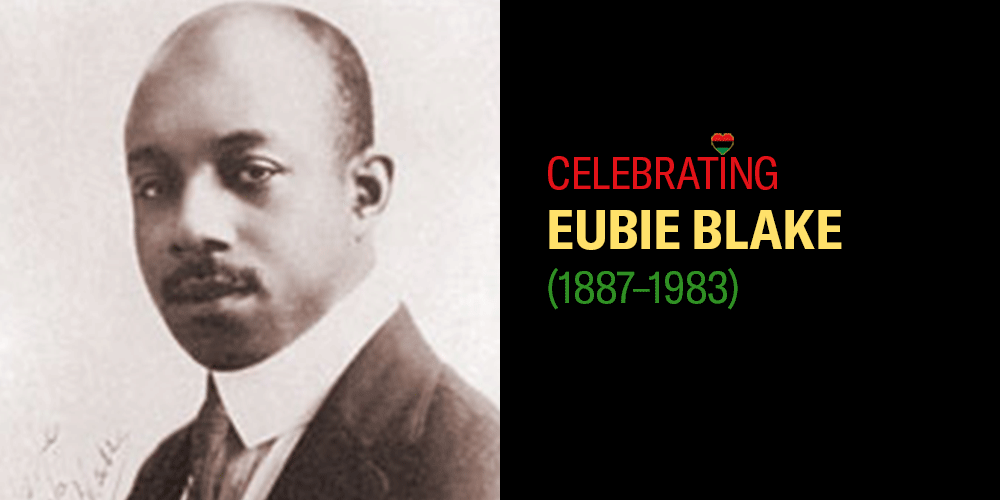
- Eubie Blake (1887–1983)
James Hubert “Eubie” Blake was born on February 7, 1887, at 319 Forrest Street in Baltimore. One of the most distinguished figures in music in the 20th century, Blake was a legendary pianist, lyricist, and composer of jazz and ragtime, having composed the melody of “Charleston Rag” in 1899 when he was only 16 years old. He wrote and composed several songs and performances, including the musical sensation "Shuffle Along" with Noble Sissle. Blake was awarded the Presidential Medal of Freedom in 1981 for his contributions to music culture and the world.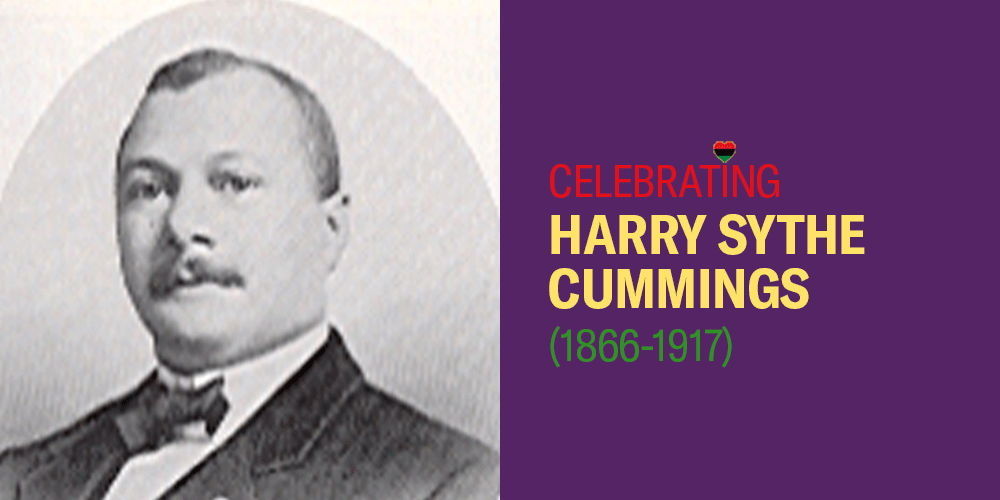
- Harry Sythe Cummings (1866–1917)
Born on May 19, 1866, in the 11th Ward (now Midtown), Baltimore, Harry Sythe Cummings was community leader, lawyer, and the first African American Councilman of Baltimore City. Cummings obtained degrees from Lincoln University and the University of Maryland School of Law, where he was the first African American to graduate from the program in 1889. A year later in 1890, he was elected as Councilman to the 17th Ward (now Inner Harbor) and founded the first Manuel Training School for Colored Youth in Baltimore City.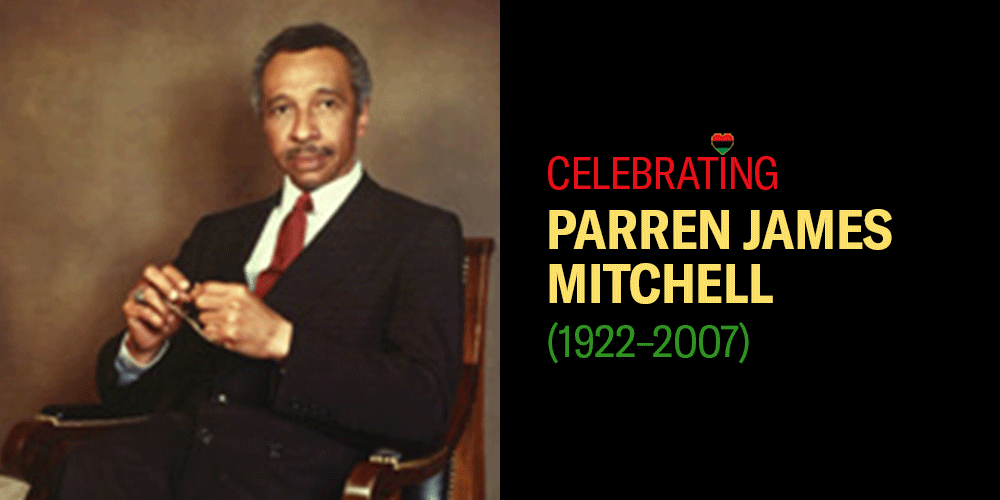
- Parren James Mitchell (1922–2007)
Parren James Mitchell was the first African American elected to Congress from Maryland. Born on April 29, 1922, Mitchell is a graduate of Frederick Douglass Senior High School, Morgan State University, and the University of Maryland College Park, and he served as an officer during World War II, later earning a Purple Heart. In 1950, the University of Maryland was still segregated, so Mitchell sued them with the support of the Baltimore NAACP branch and won admission. He is one of the thirteen founders of the Congressional Black Caucus and represented Maryland in Congress for sixteen years.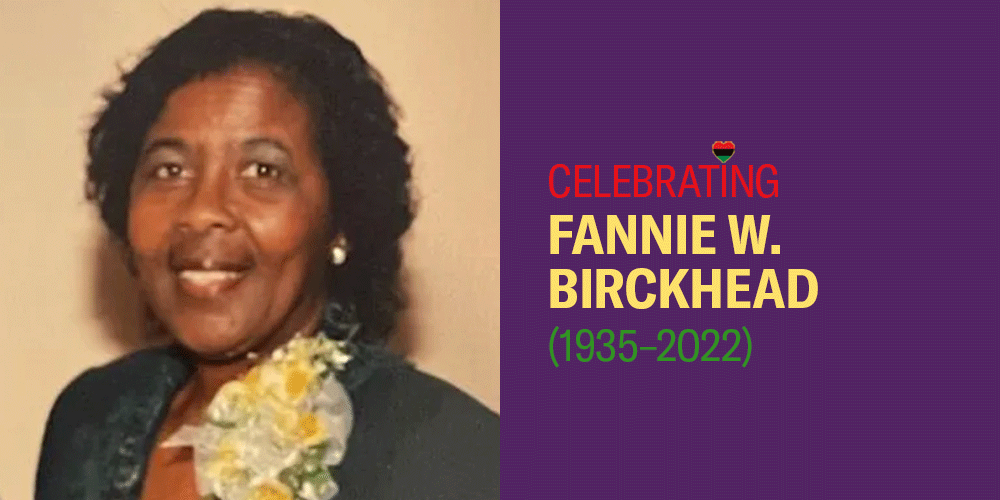
- Fannie W. Birckhead (1935–2022)
A lifelong resident of Snow Hill, Maryland, Fannie W. Birckhead, born on February 28, 1935, was an enthusiastic volunteer and civic and community organizer for a wide variety of local groups. She was one of the Black residents who brought a federal lawsuit, with support from the ACLU, challenging the all-white Worcester County Commission. Despite the County's years-long fight to suppress the rights of Black voters, through perseverance the plaintiffs won their case, resulting in the historic election of the first Black County Commissioner. In 1998, she served as interim mayor for Snow Hill, making her the first Black woman mayor anywhere on the Eastern Shore. Ms. Birckhead also became Judge Birckhead, winning the election as the County's first Black Orphan's Court Judge, and the first Black person in the County's history to win election to office county-wide. Birckhead was a true hometown hero.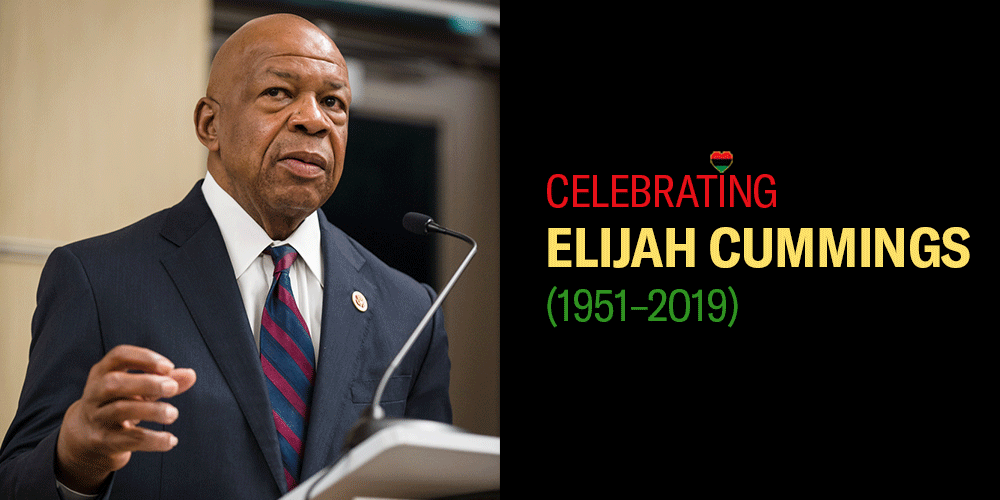
- Elijah Cummings (1951–2019)
Extremely dedicated to and passionate about his beliefs, Elijah Eugene Cummings was a giant for Maryland. He was born on January 18, 1951, in Baltimore to sharecroppers. In addition to being a civil rights advocate, he was also a celebrated politician who served in the Maryland House of Delegates for fourteen years, where he was Chairman of the Legislative Black Caucus of Maryland. Cummings would later serve in the United States House of Representatives for Maryland’s 7th congressional district, where he became chair of the Committee on Oversight and Reform. He received thirteen honorary doctoral degrees from various universities across the nation.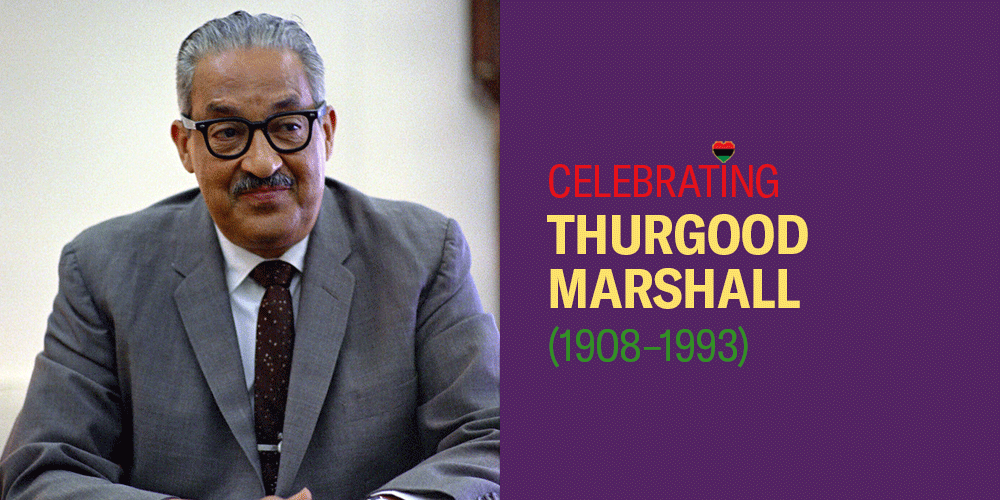
- Thurgood Marshall (1908–1993)
Born on July 2, 1908, Thurgood Marshall was one of the most prolific leaders the United States has ever seen. Marshall was a famed lawyer and civil rights activist who became the first African American Justice of the Supreme Court of the United States. Previously, Marshall founded the NAACP Legal Defense and Educational Fund, where he served as executive director and successfully argued cases before the Supreme Court, including Smith v. Allwright, Shelly v. Kramer, and Brown v. Board of Education. Baltimore’s BWI Airport, among other things, is named in his honor and there is a statue of him at Lawyer’s Mall in front of the Maryland State House in Annapolis.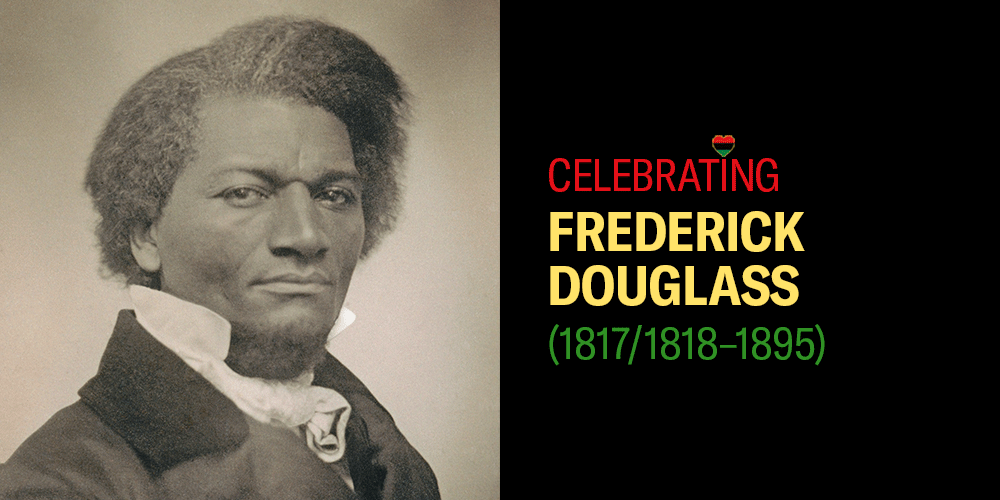
- Frederick Douglass (1817/1818–1895)
Known by many as the “father of the civil rights movement," Frederick Douglass was a social reformer, orator, political leader, writer, and abolitionist. While the precise birthday of Douglass is unknown, he is believed to have been born in February of 1817 or 1818 in Talbot County, Maryland. Douglass was famous for his antislavery writings and oratory skills. He wrote three autobiographies, including the bestseller Narrative of the Life of Frederick Douglass, An American Slave, and without his consent, was the first African American nominated for Vice President of the United States. Douglass also produced several abolitionist newspapers, including The North Star. There is also a statue of Douglass outside the Talbot County courthouse and his home in Cedar Hill is now a National Historic site.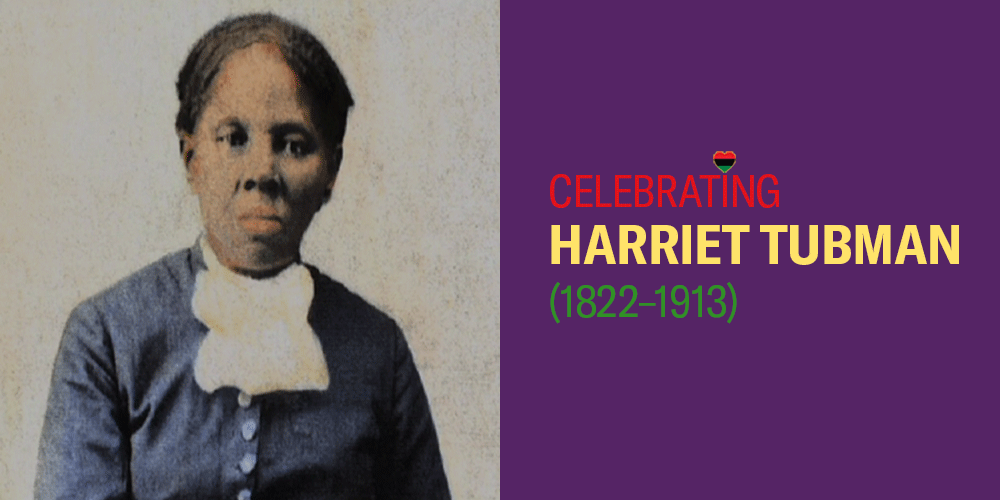
- Harriet Tubman (1822–1913)
Often referred to as “Moses,” the heroine Harriet Tubman was born in March of 1822 in Dorchester County, Maryland. Best known as a conductor of the Underground Railroad, Tubman was an abolitionist, political activist, and war veteran who went on thirteen missions to rescue seventy people who were enslaved. Among her many accomplishments, Tubman served as a scout, nurse, and spy for the Union Army, and she is one of the most recognized icons of freedom and courage in American history. A 125-mile self-guided driving tour called the Harriet Tubman Underground Railway Byway is available to the public to view over 30 essential sites of the Underground Railroad including The Tubman Museum & Educational Center, home of the iconic Harriet Tubman mural.
How did you do? Did you know all of them? Even if you didn't, you do now!
Want updates about our work, including urgent actions and how you can get involved?

